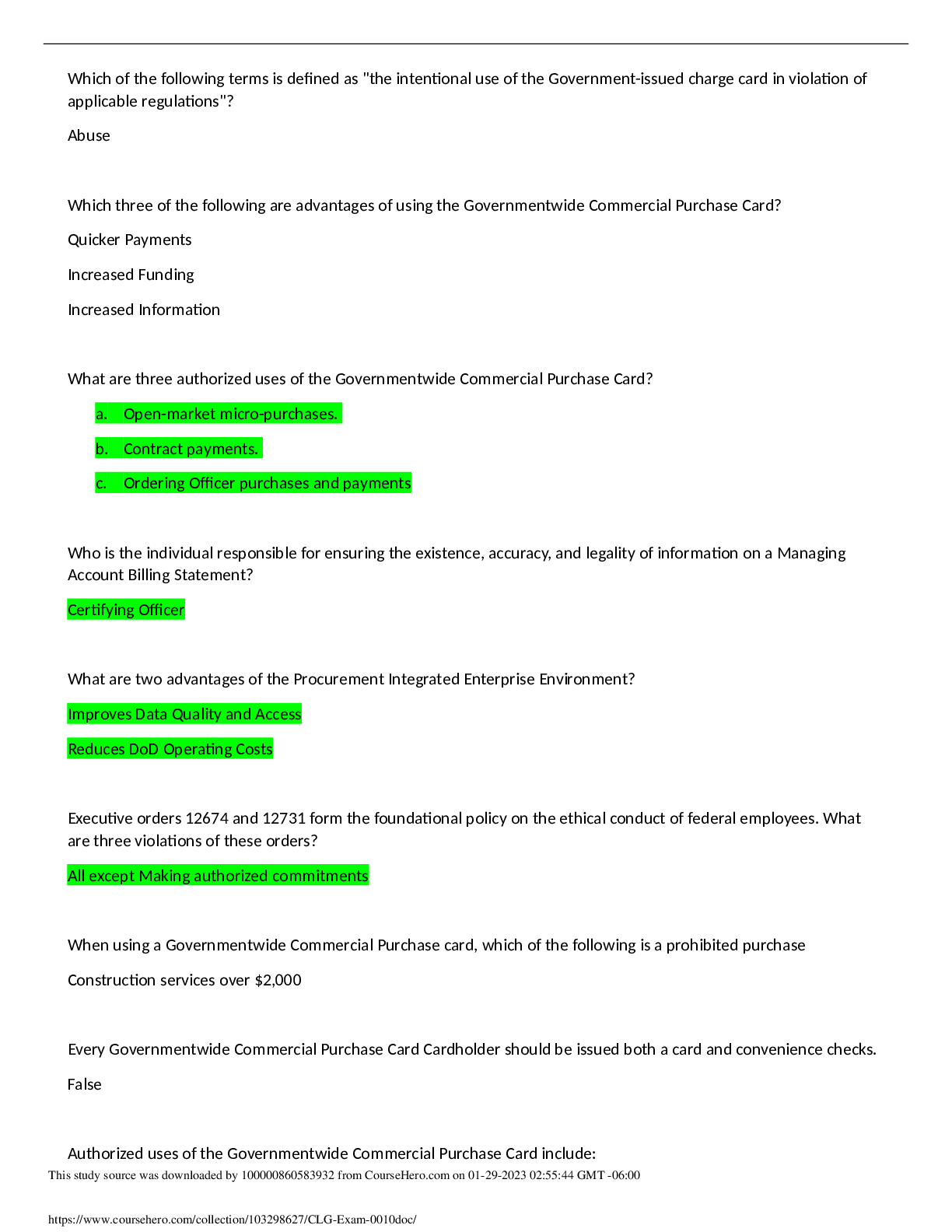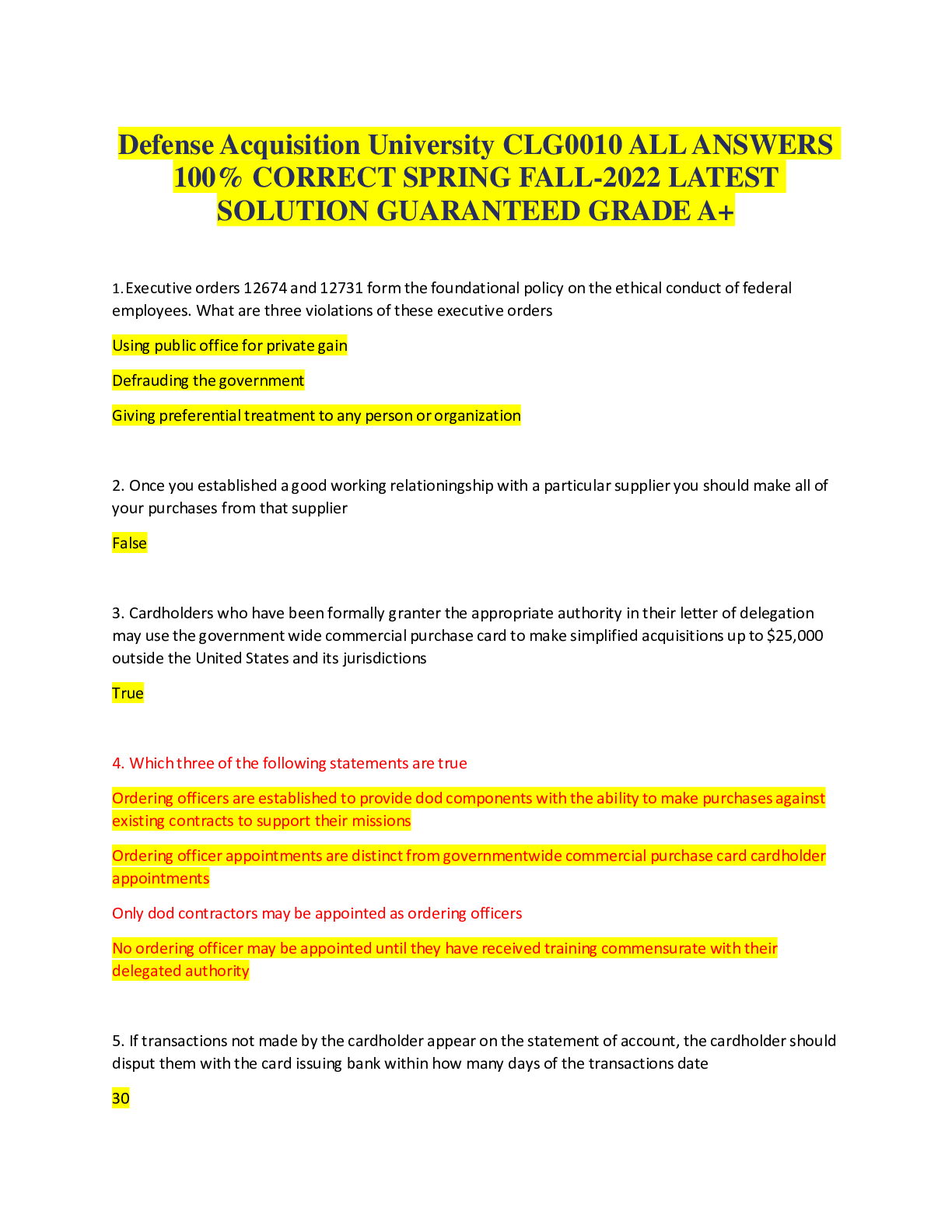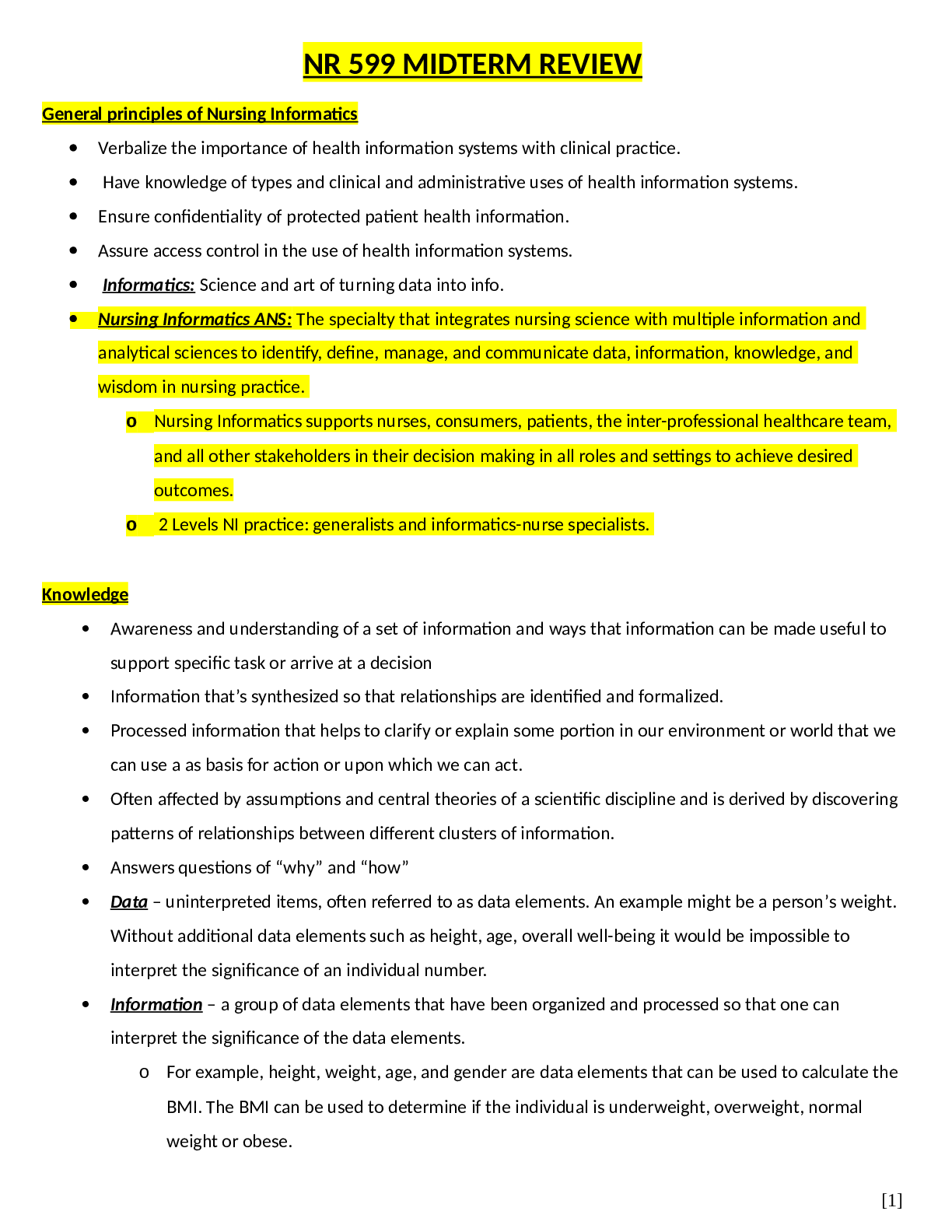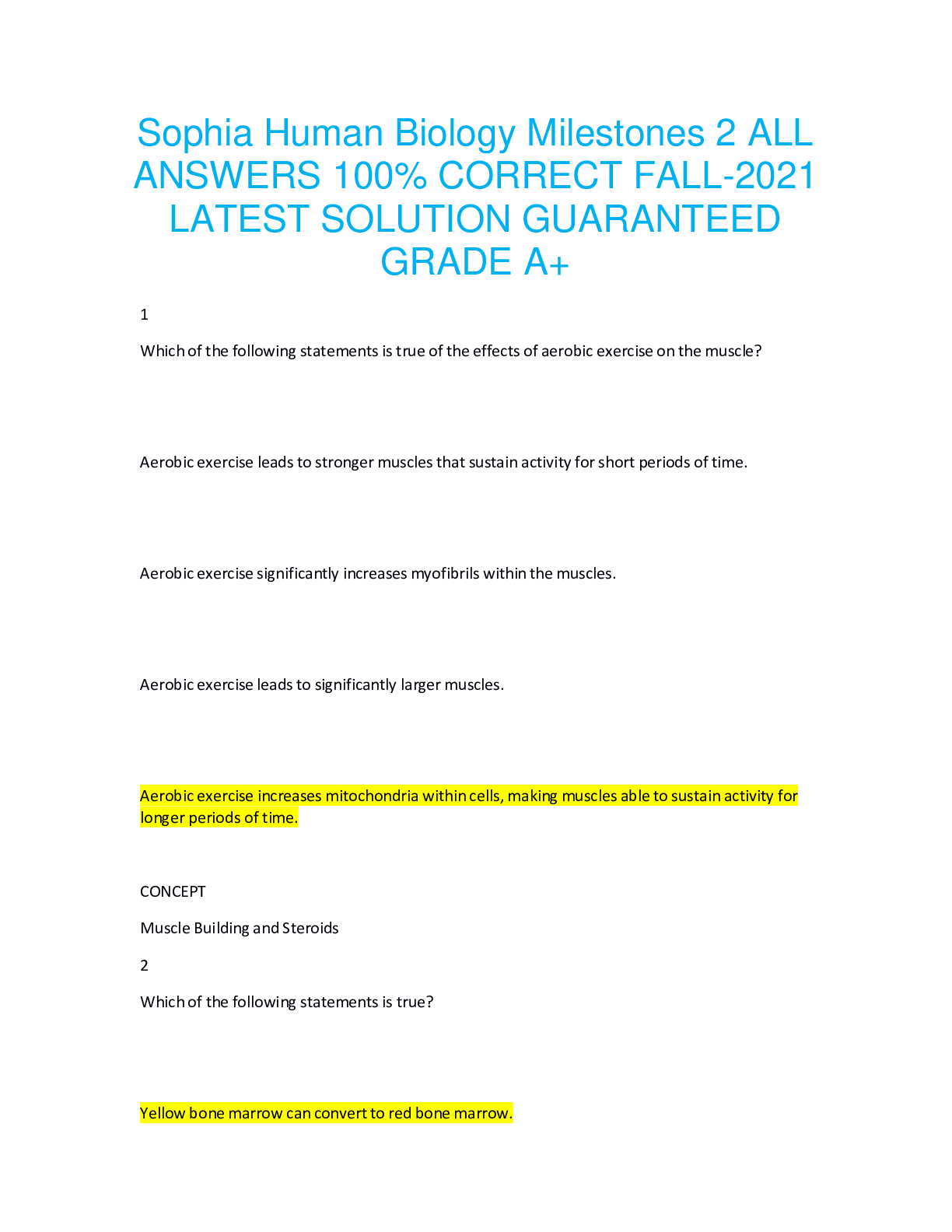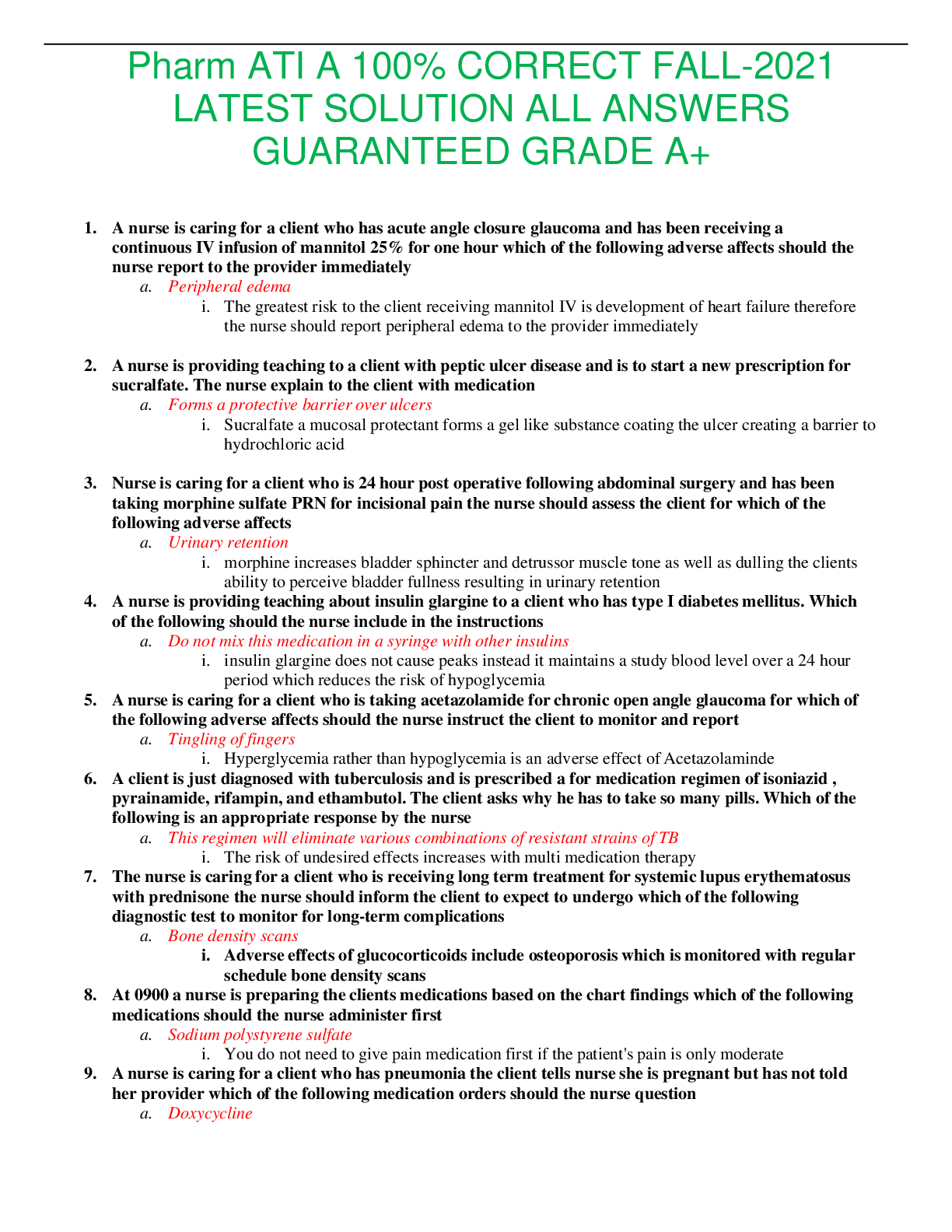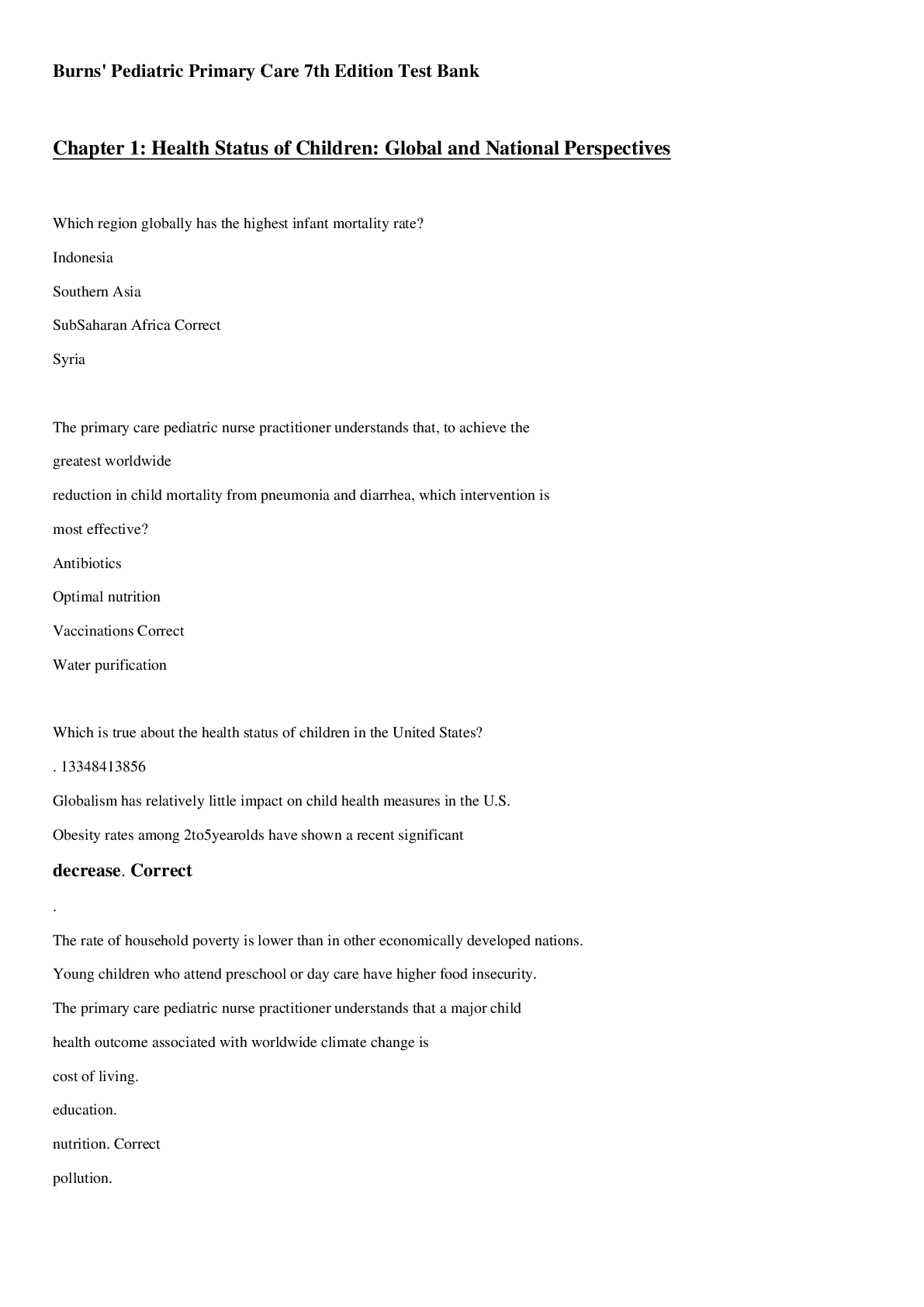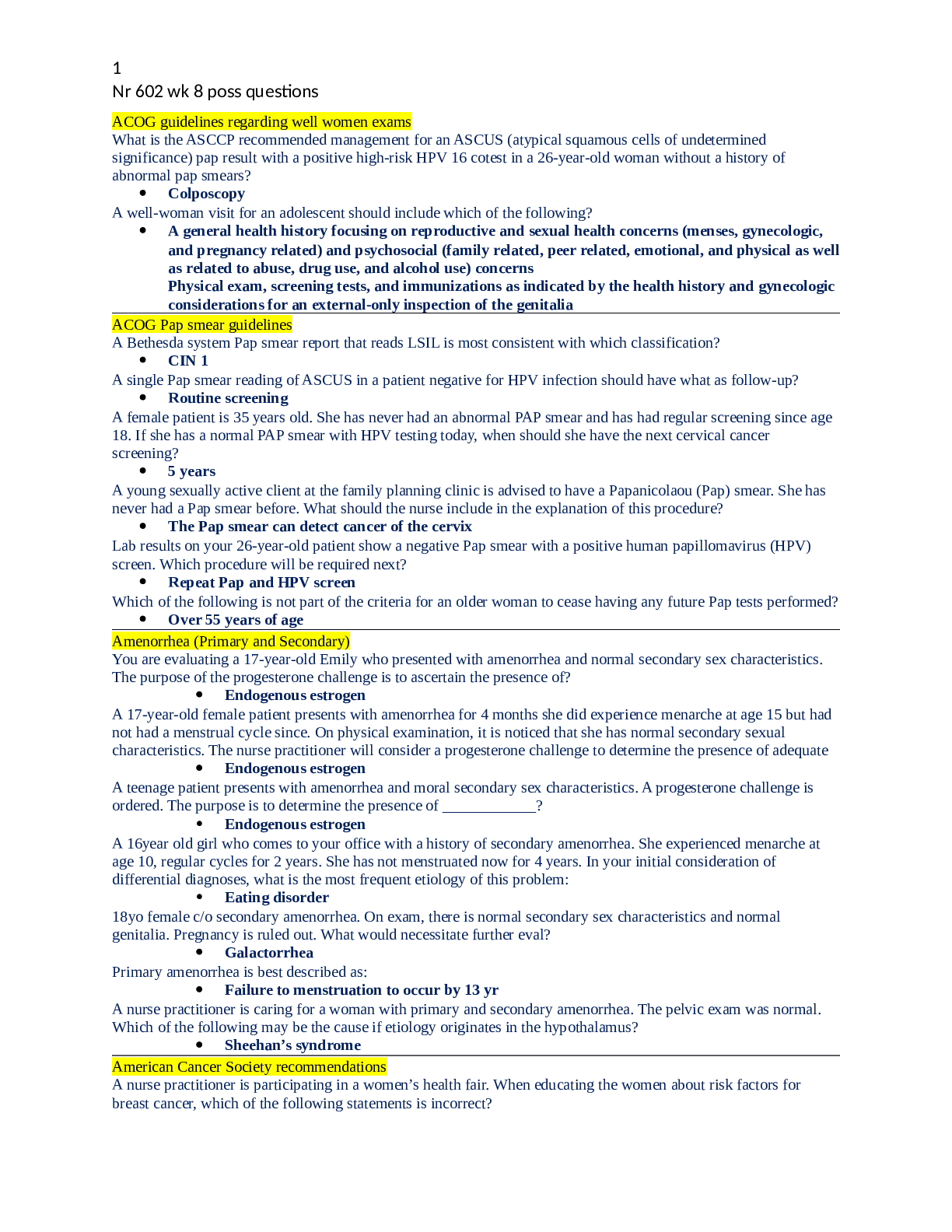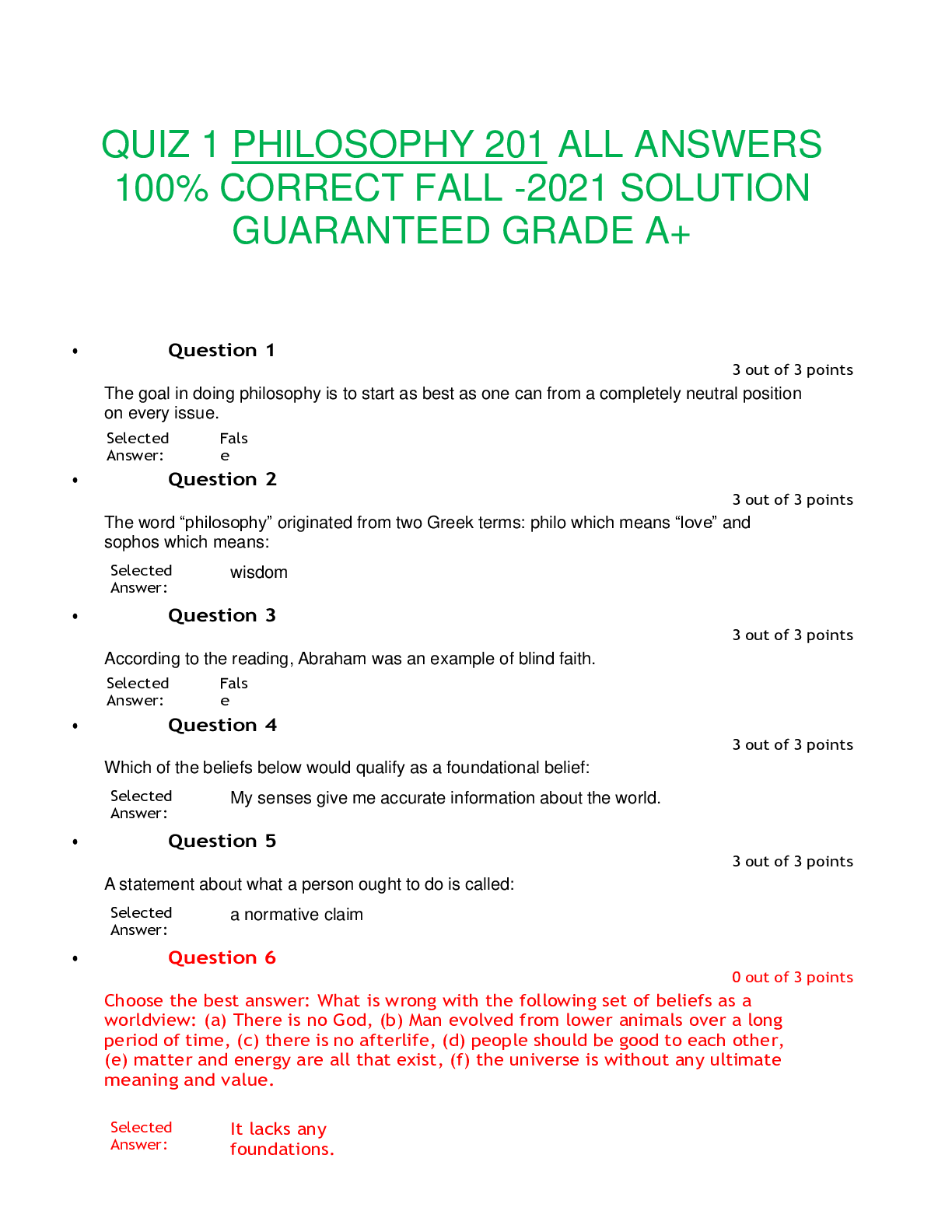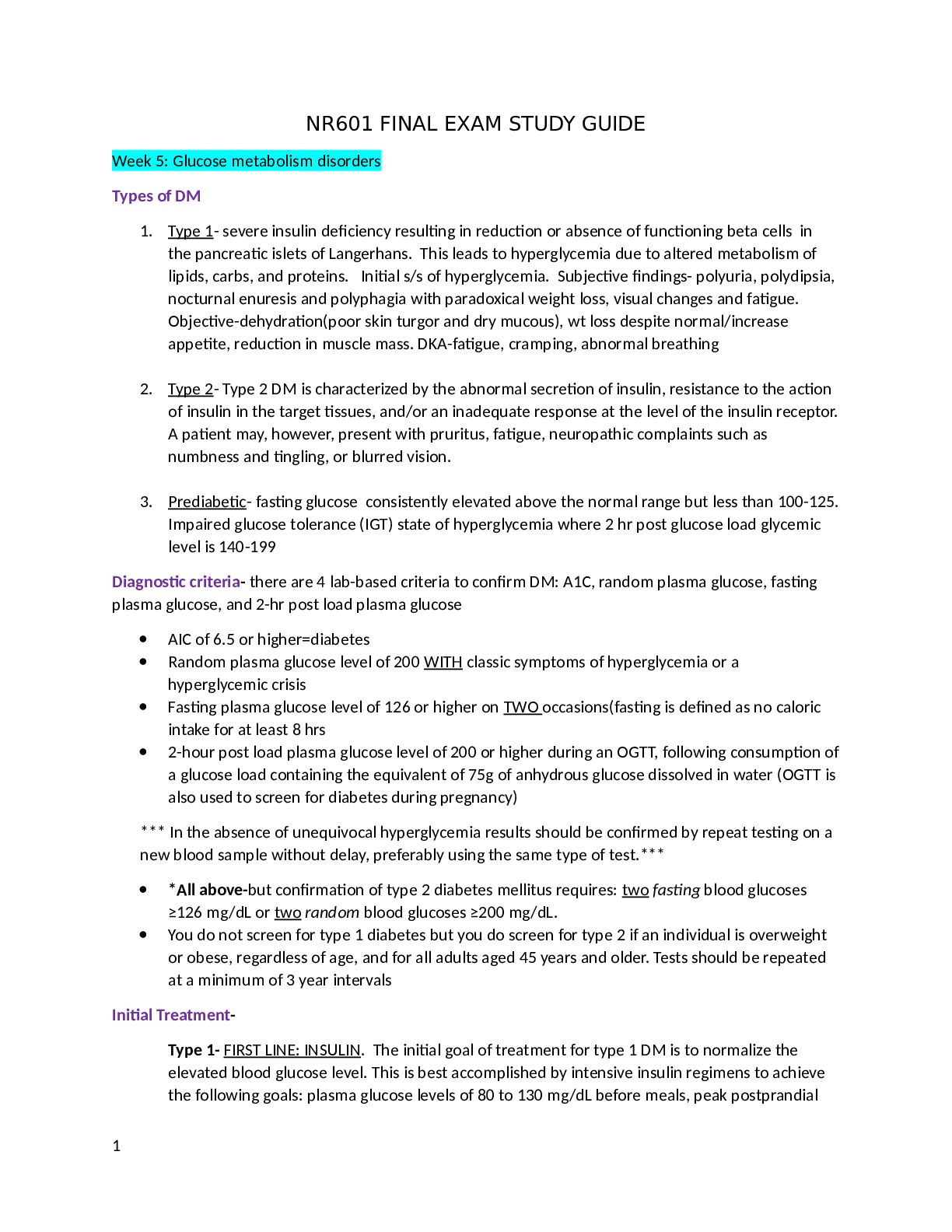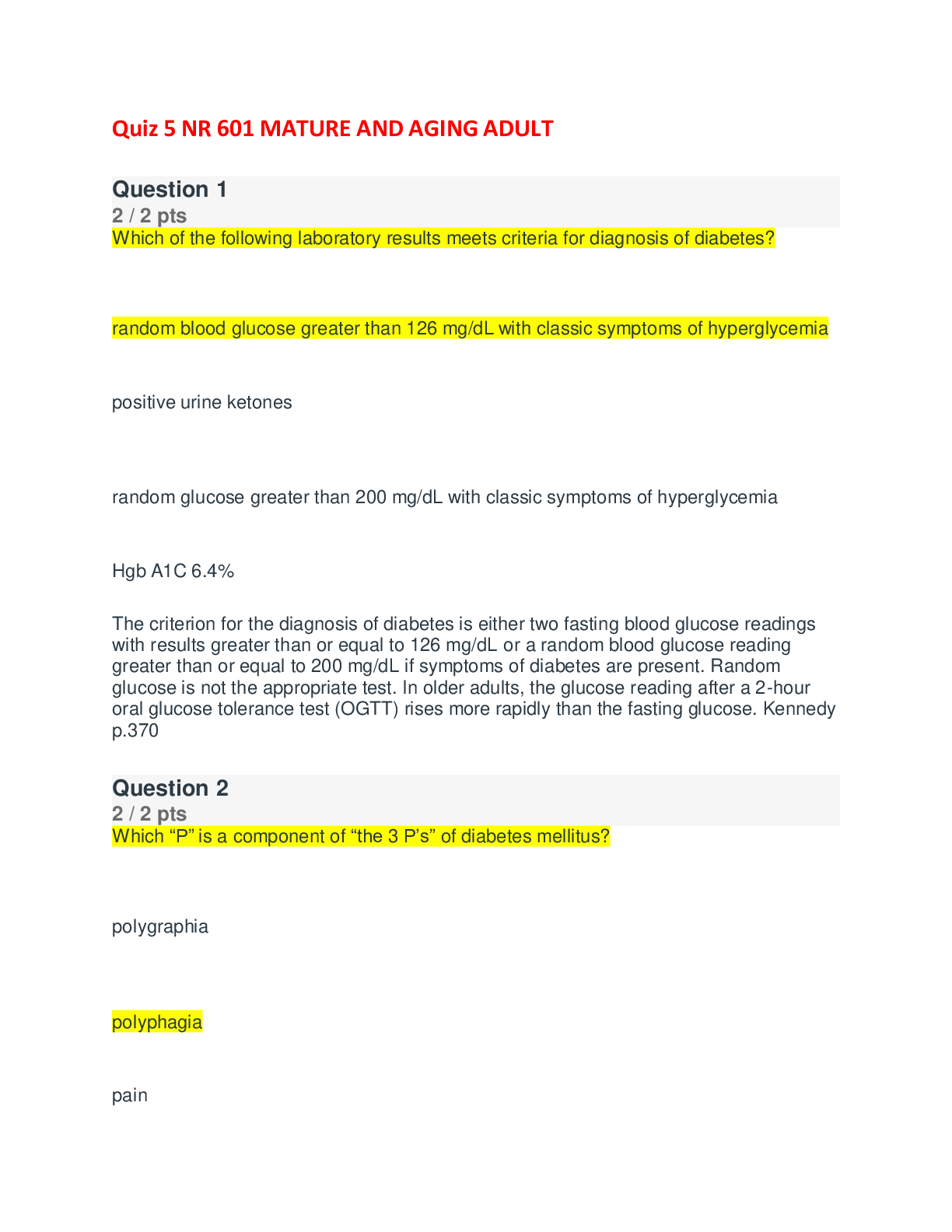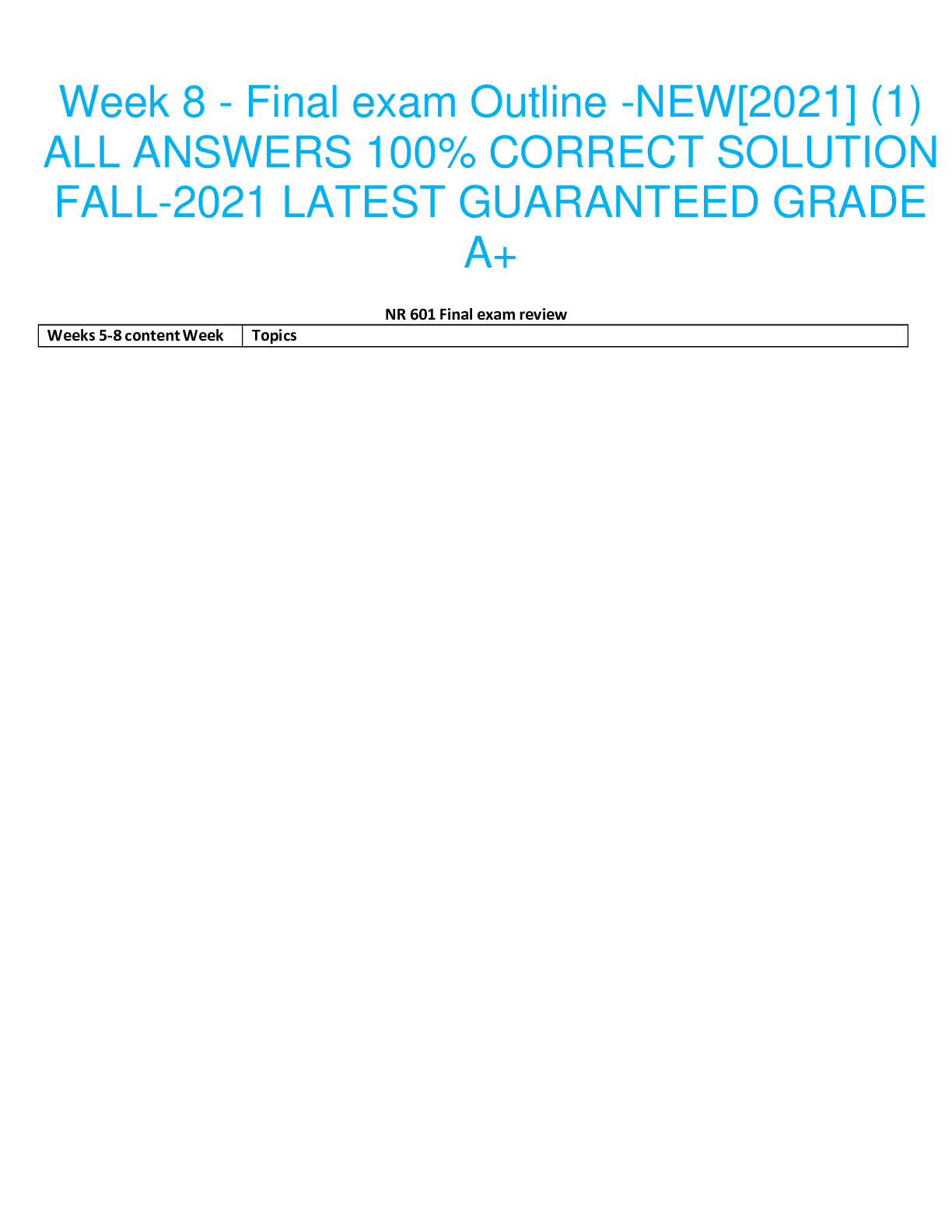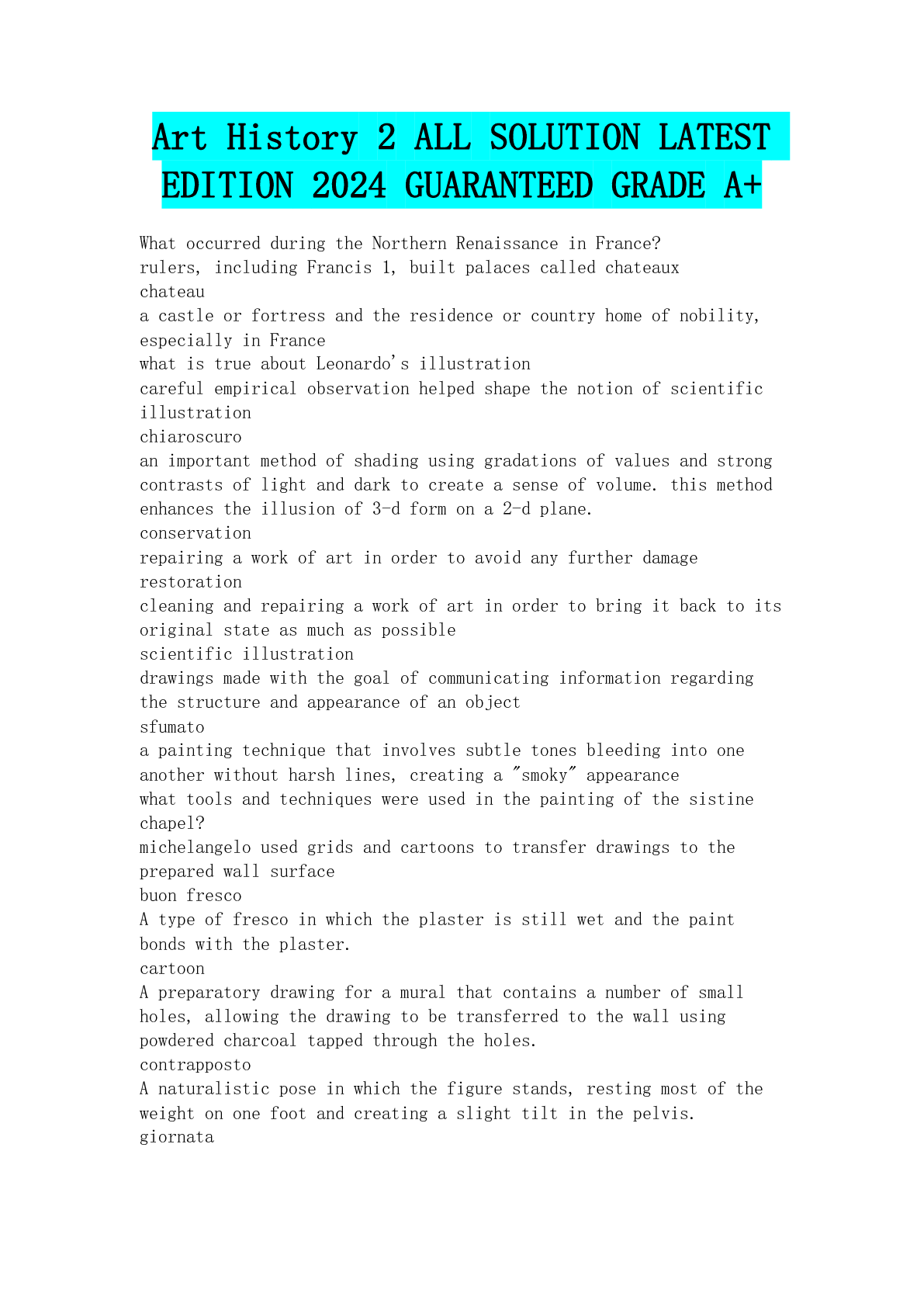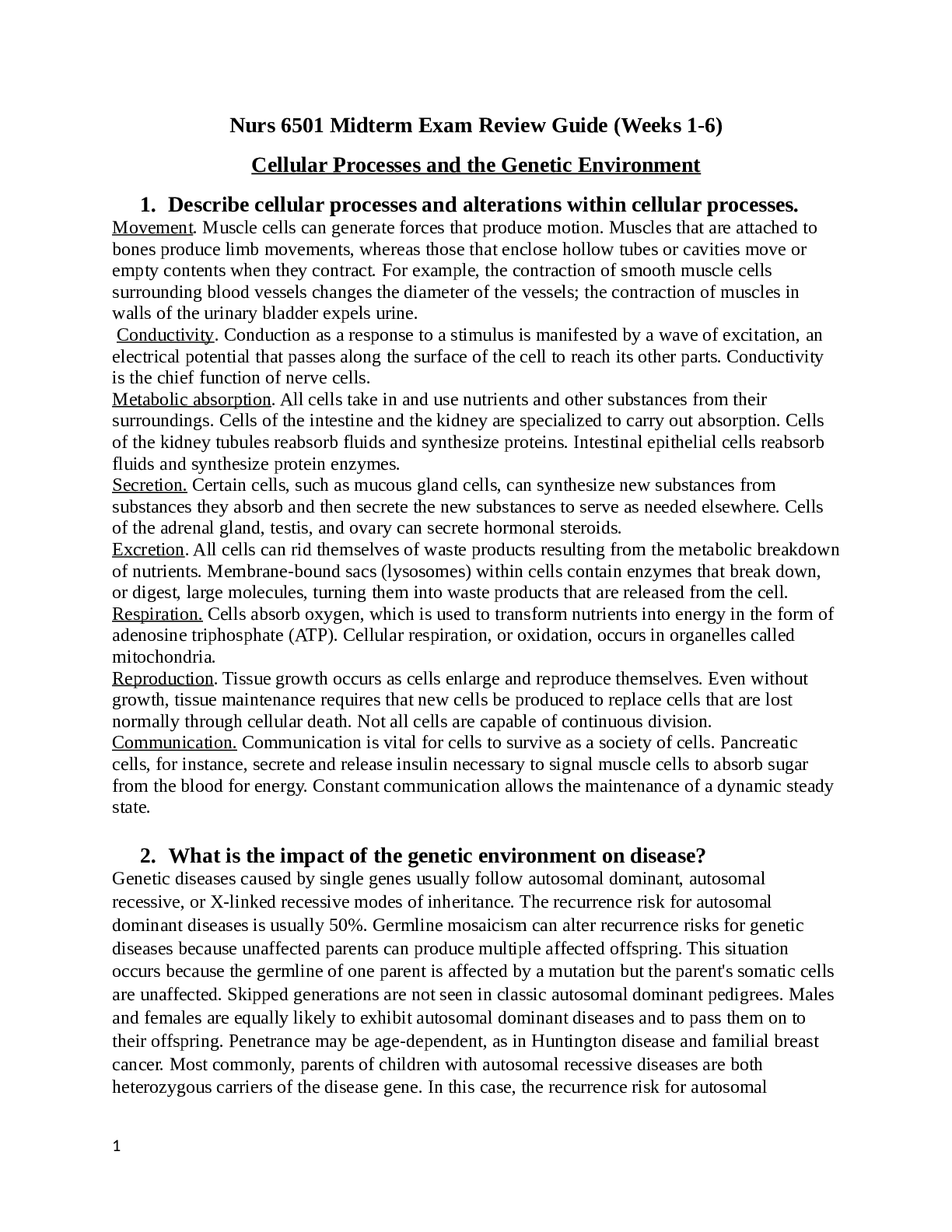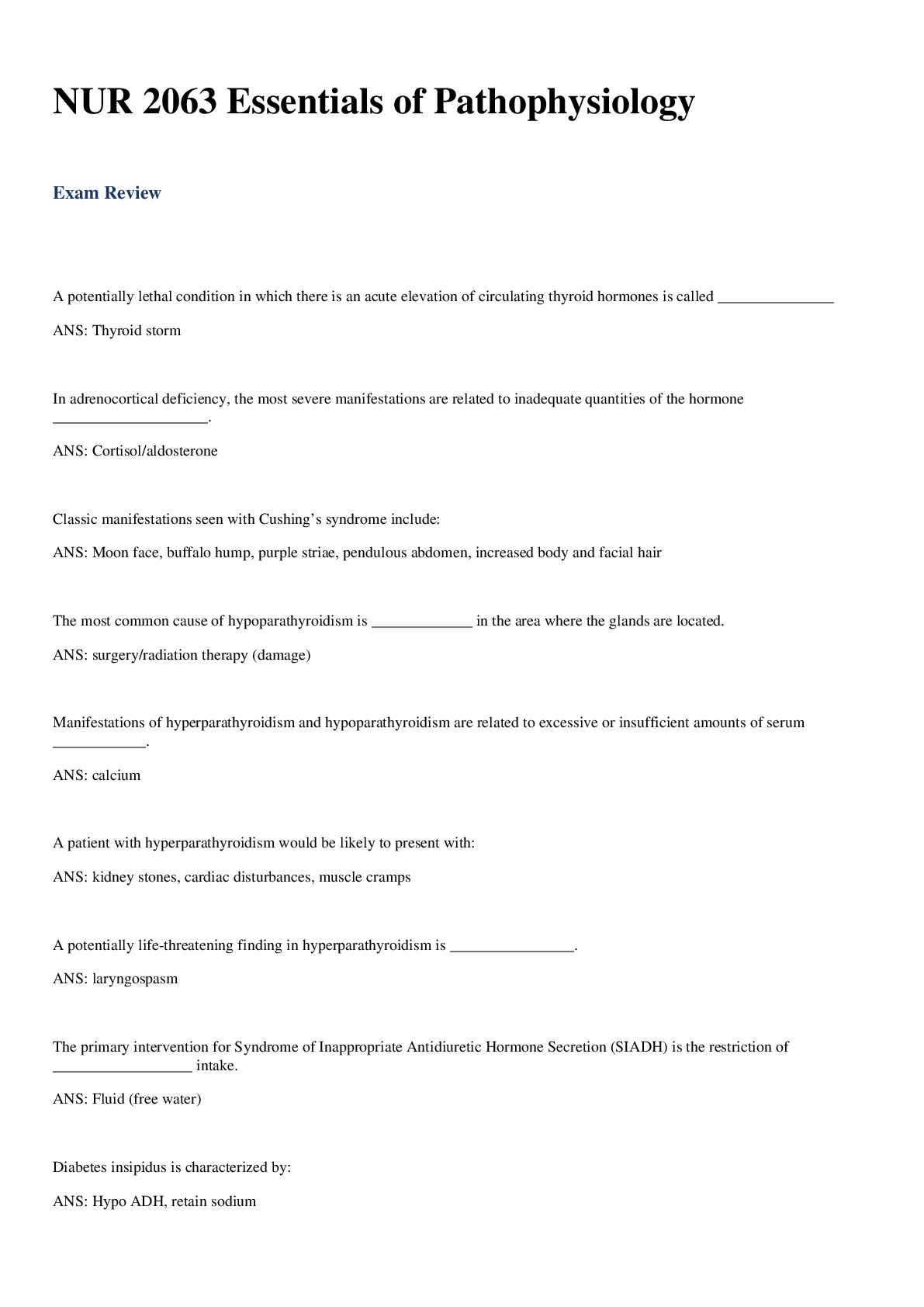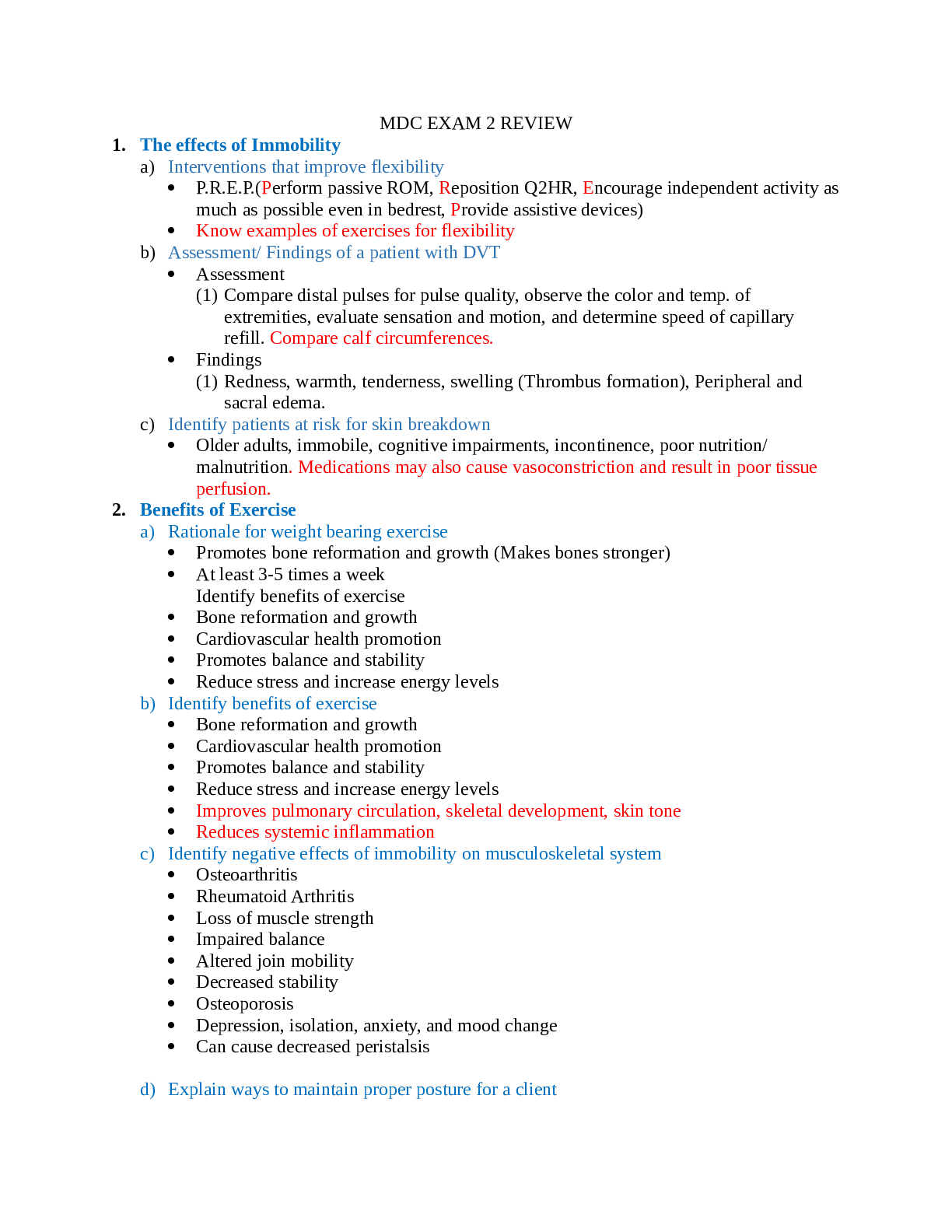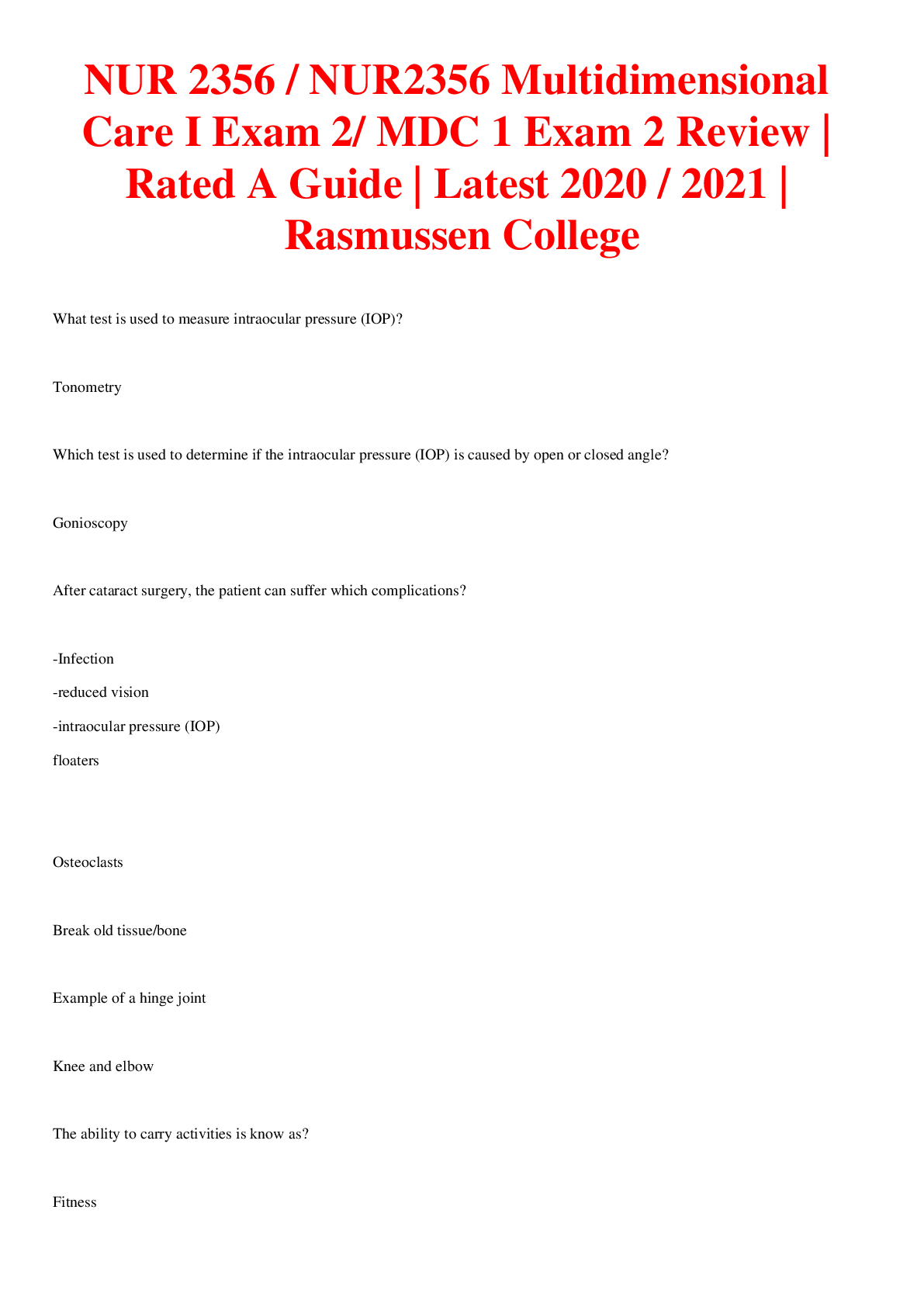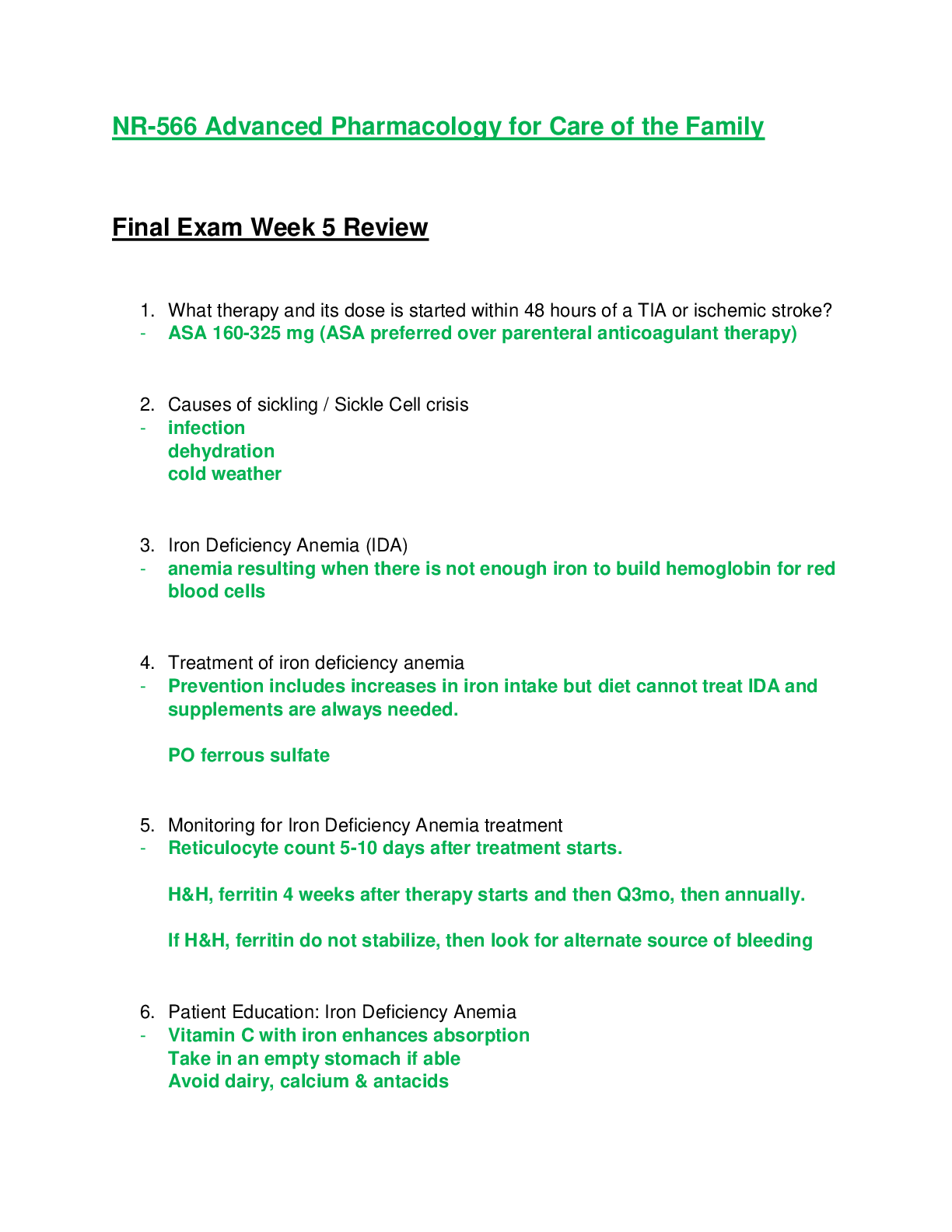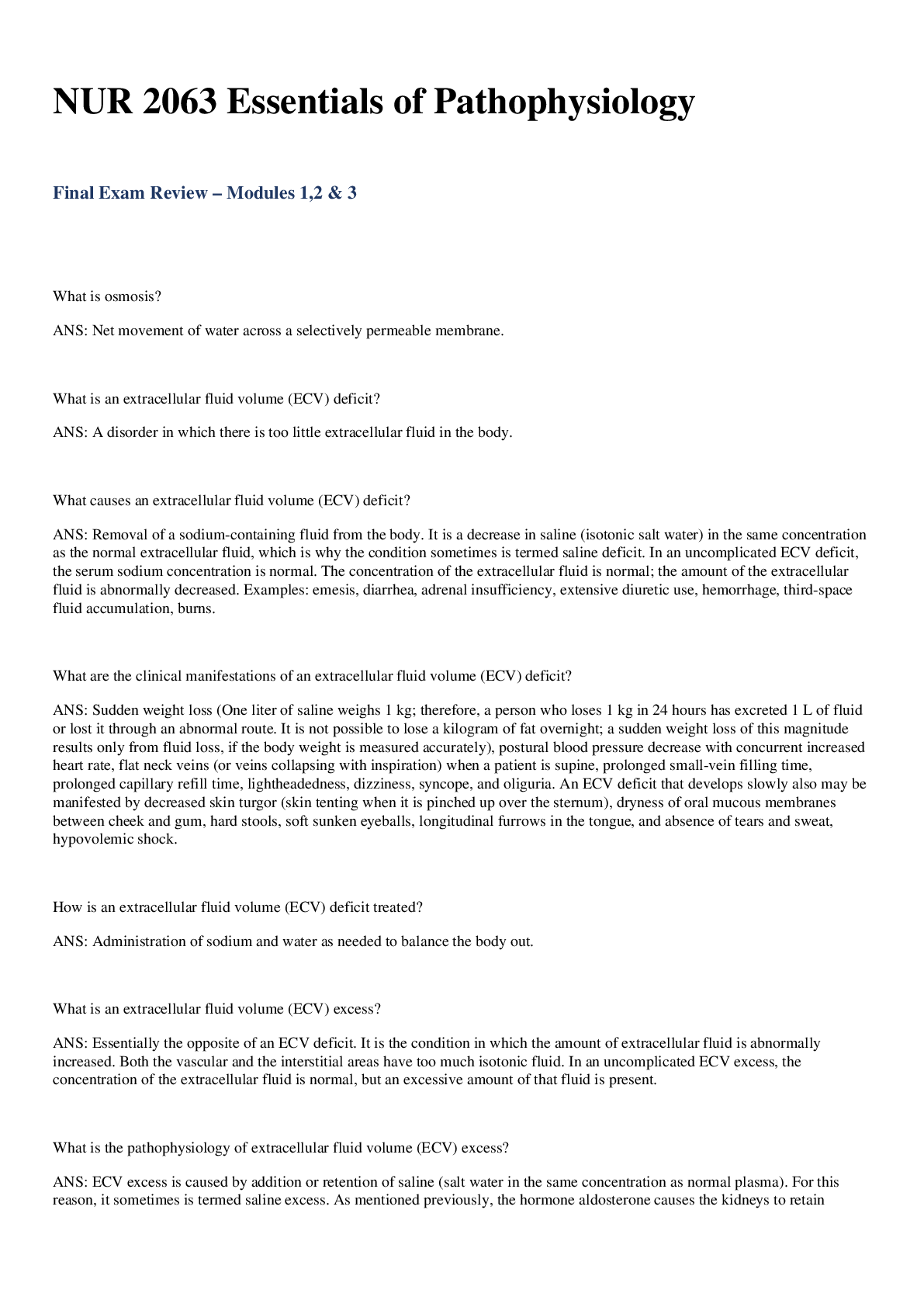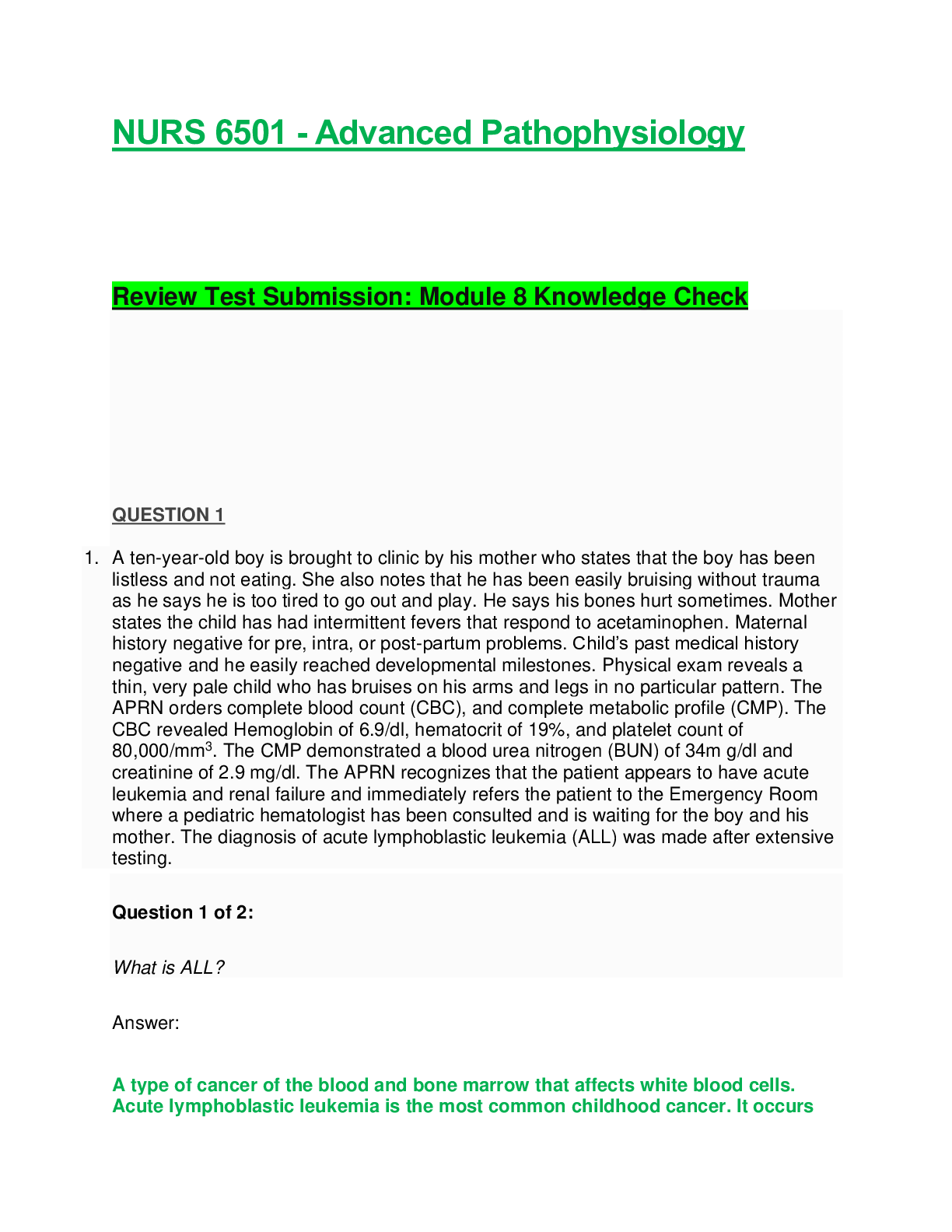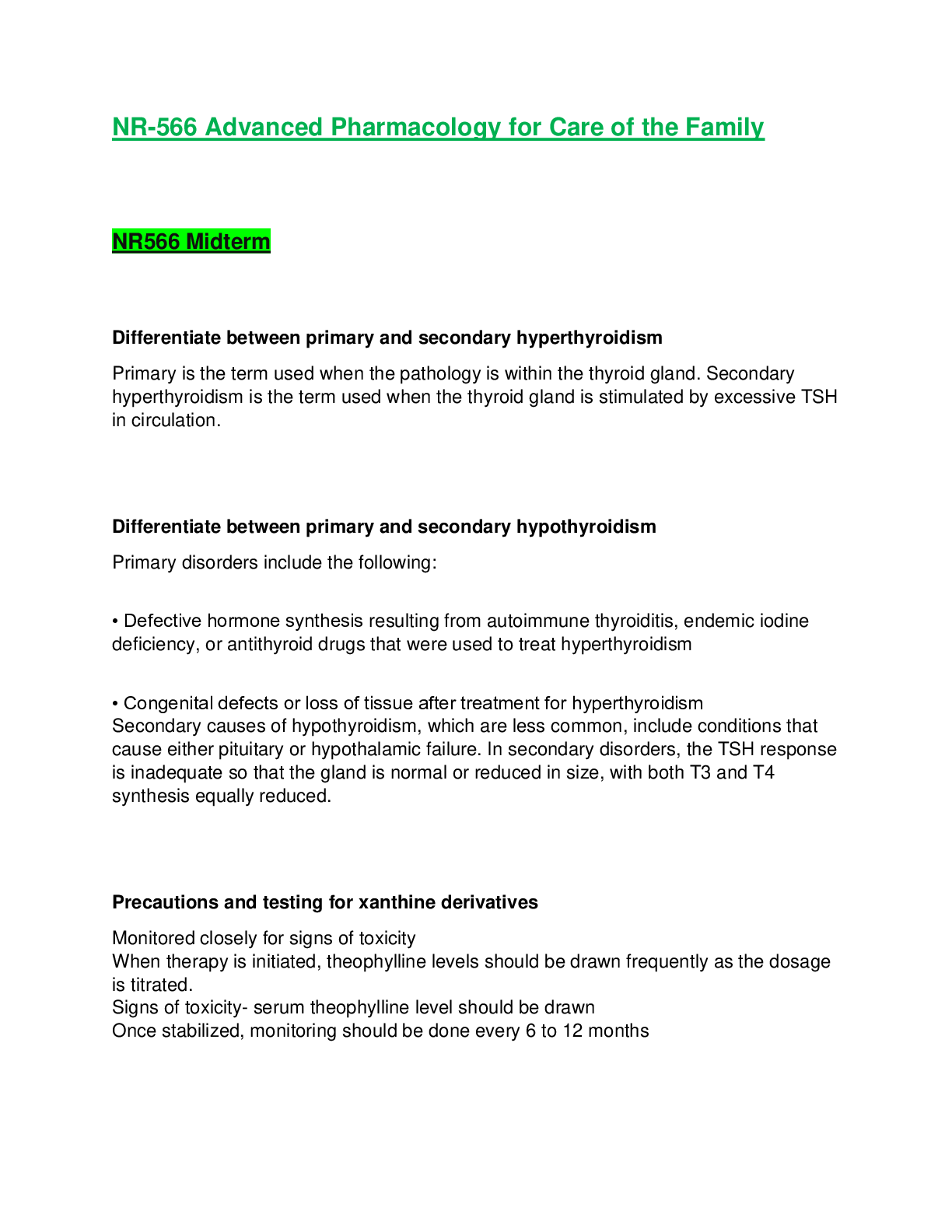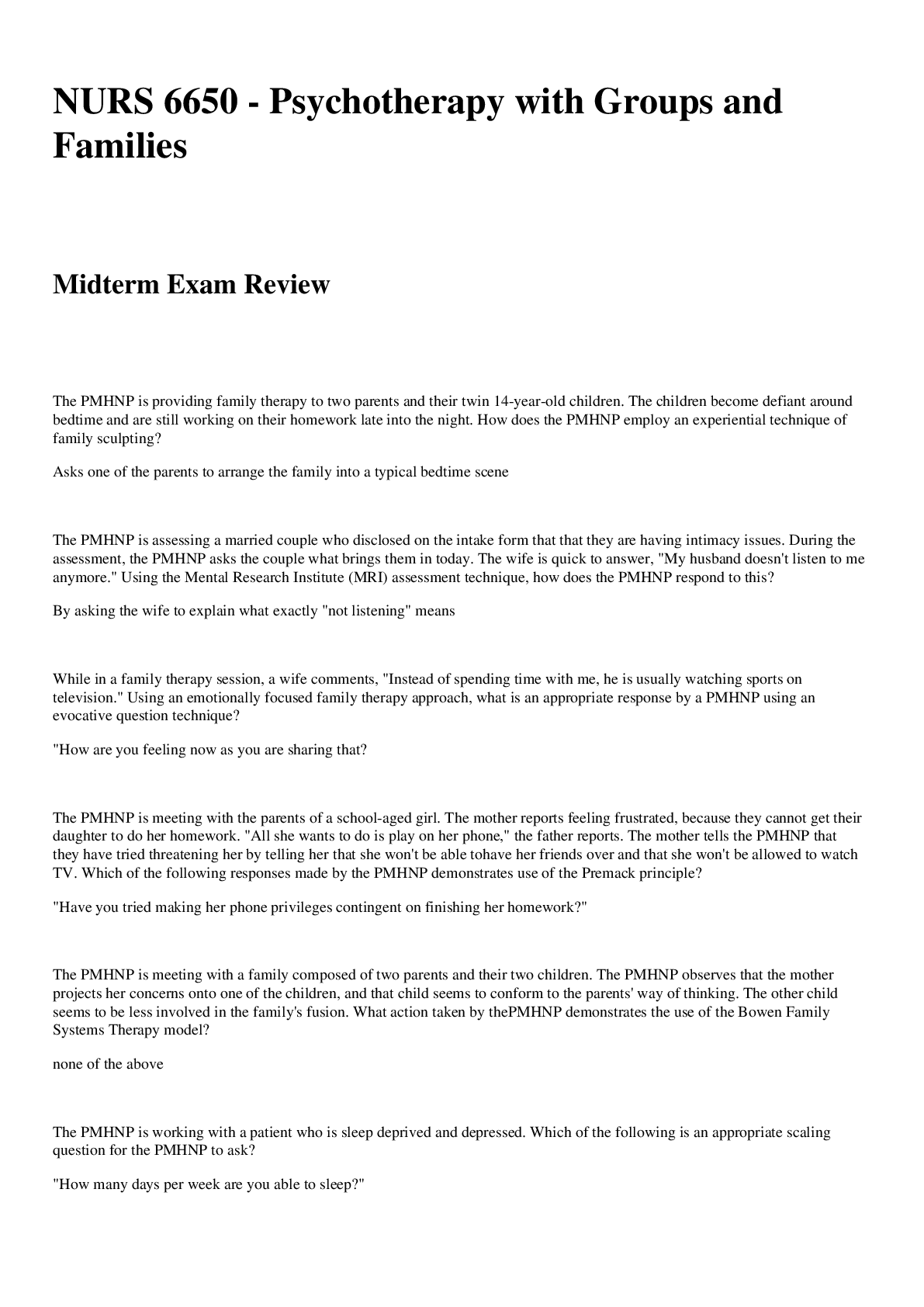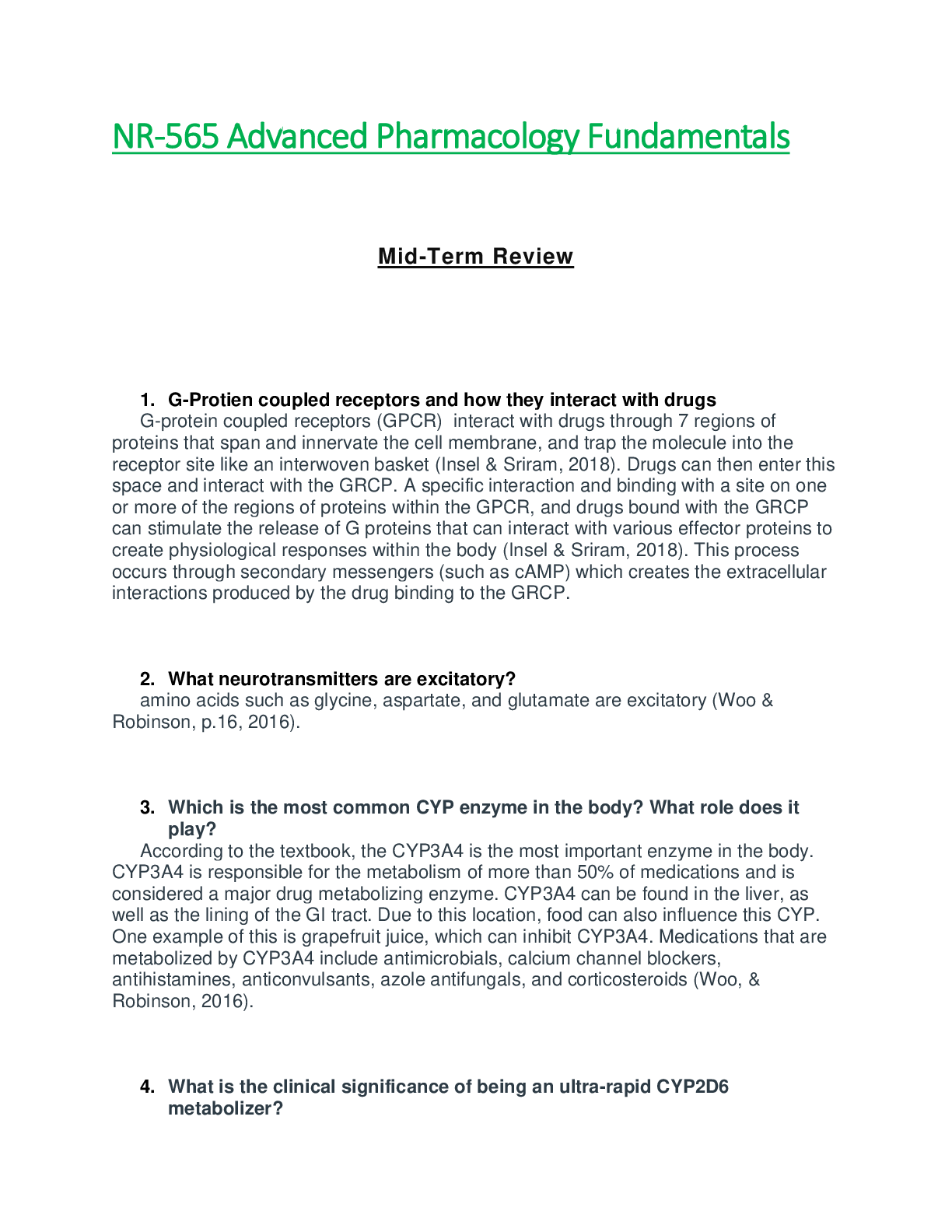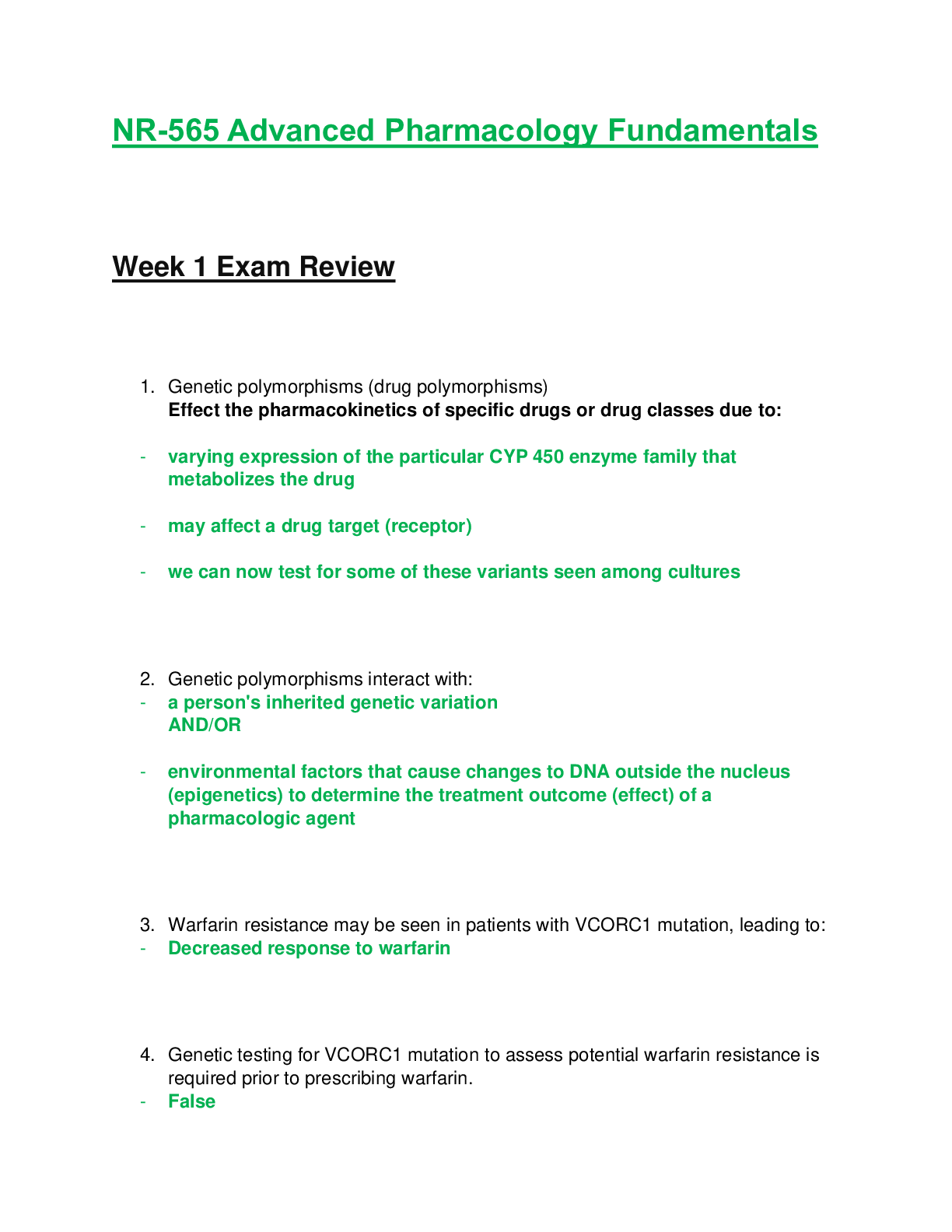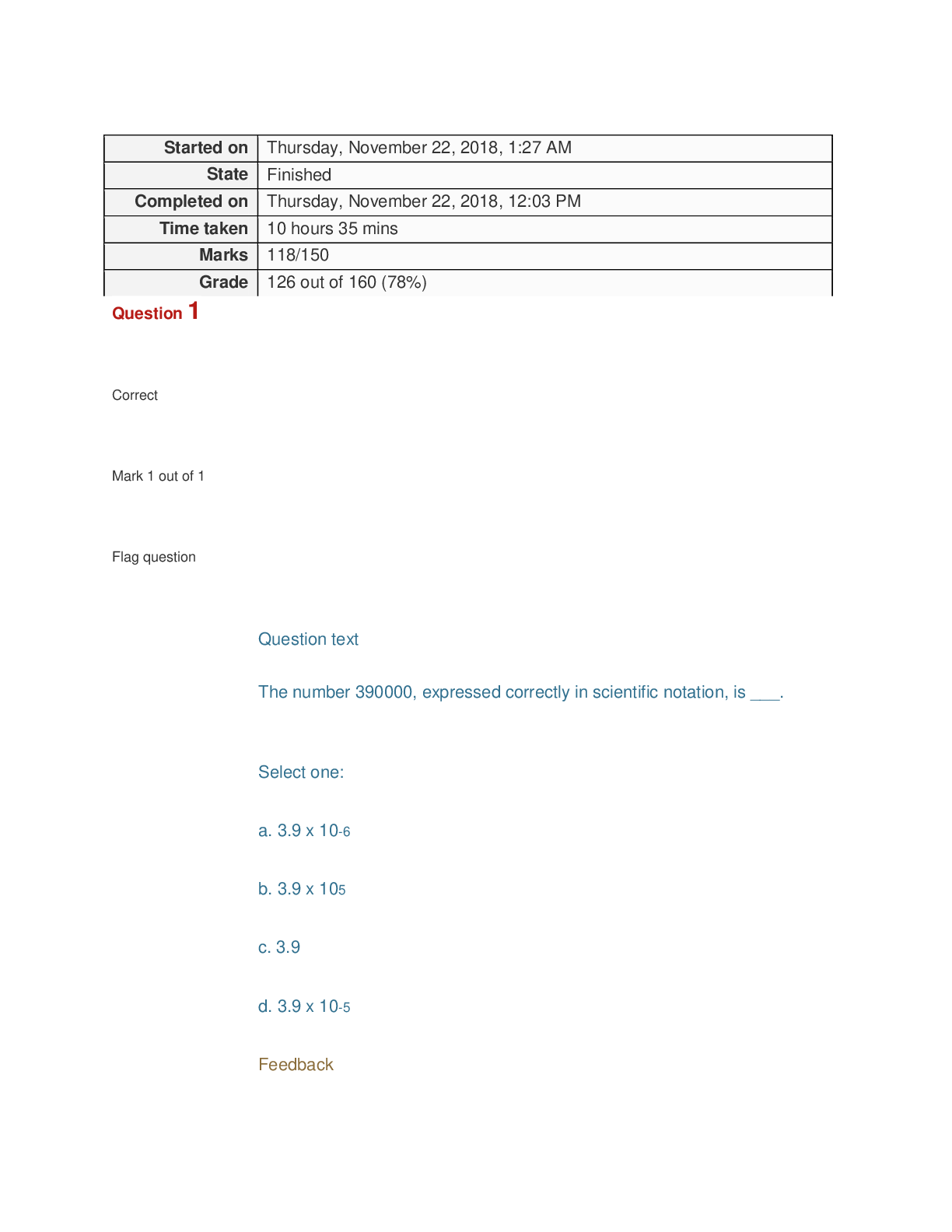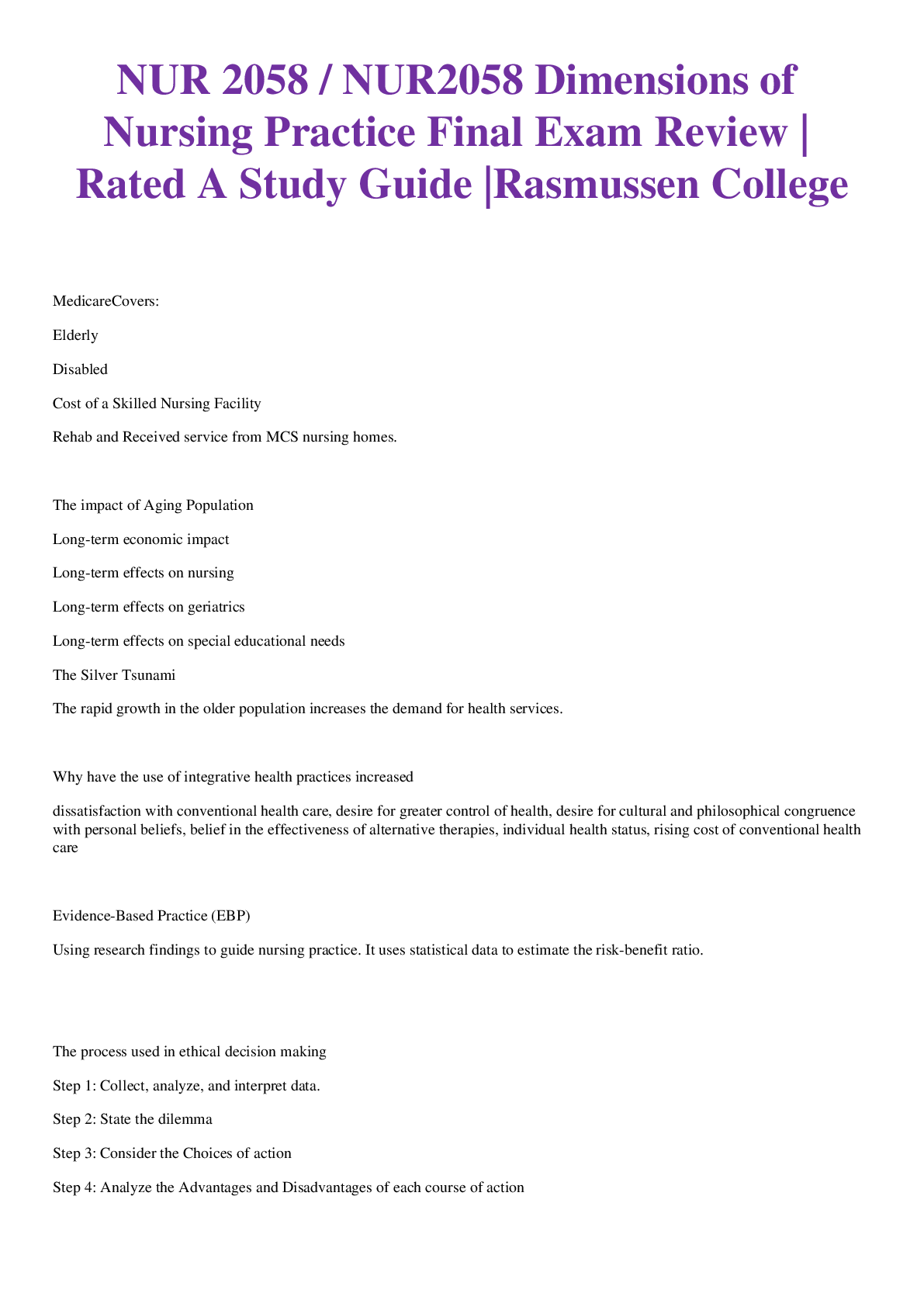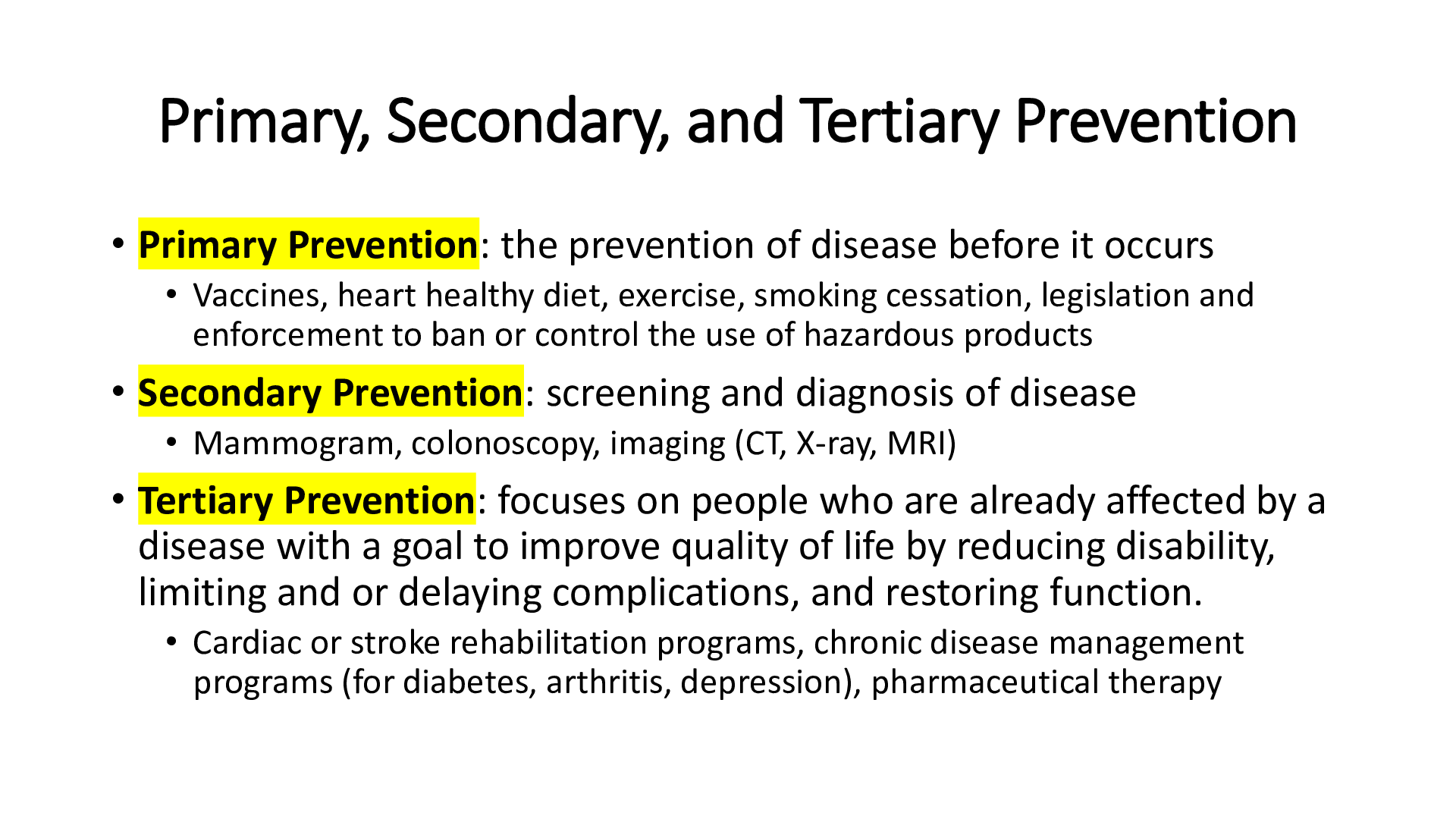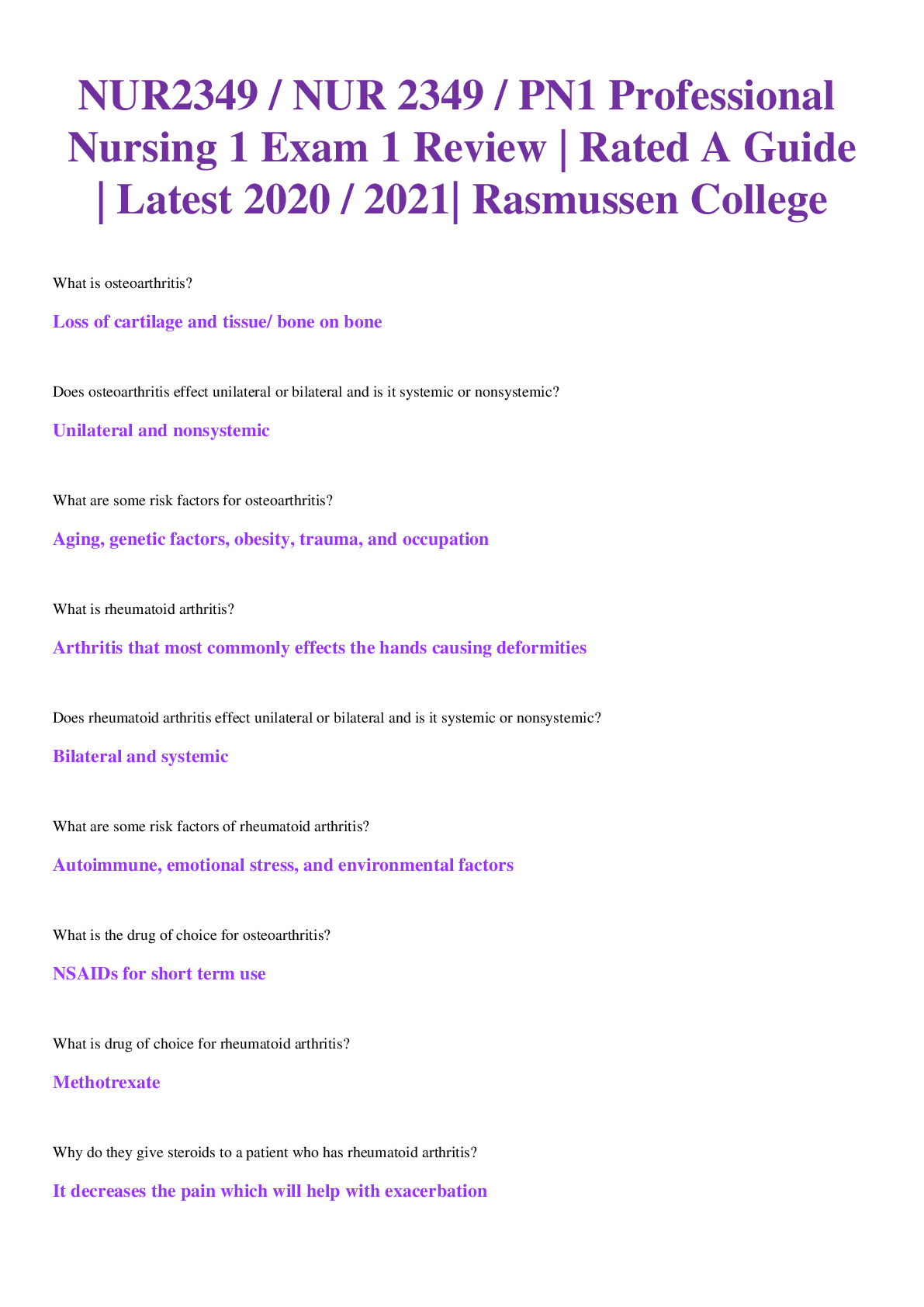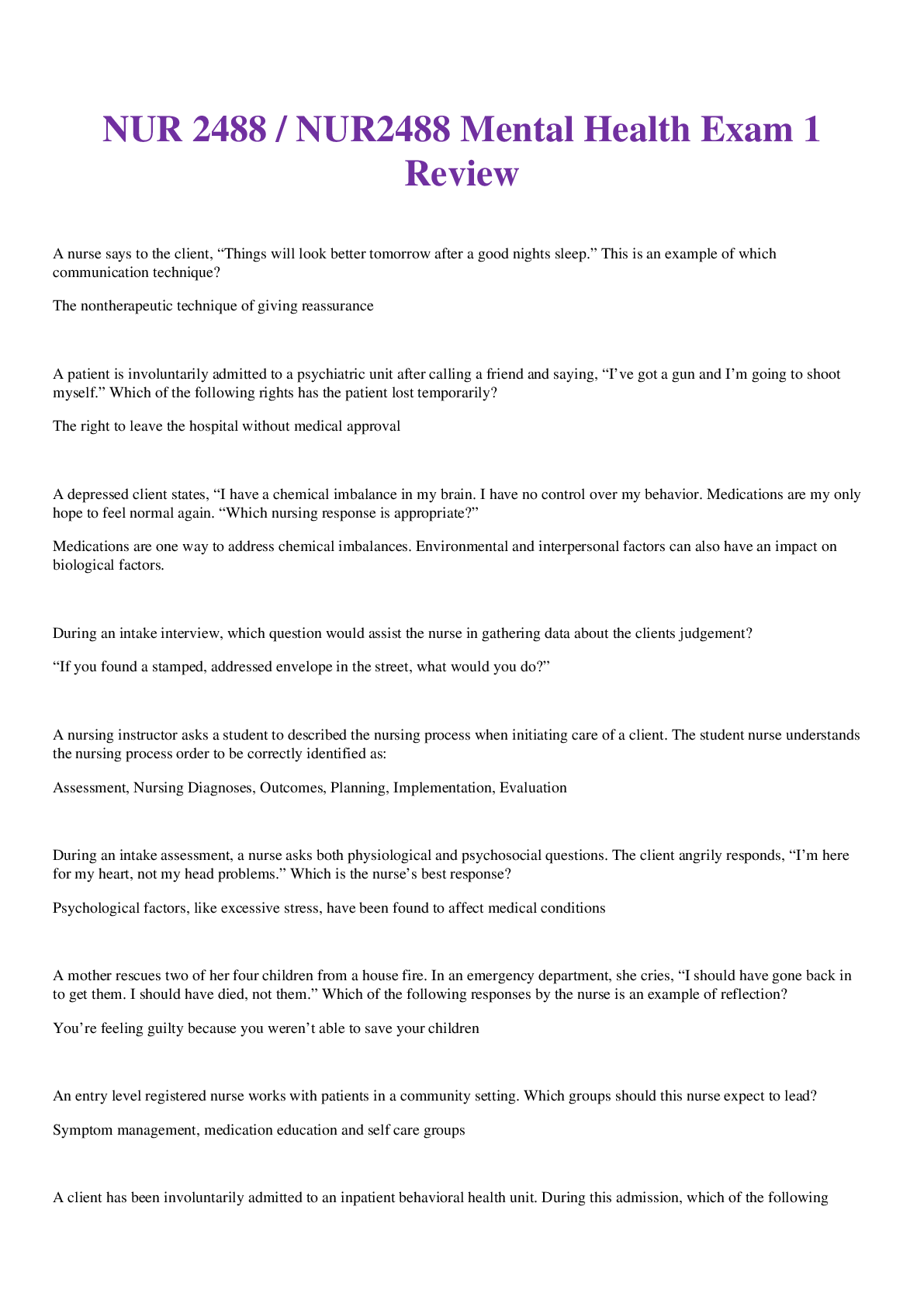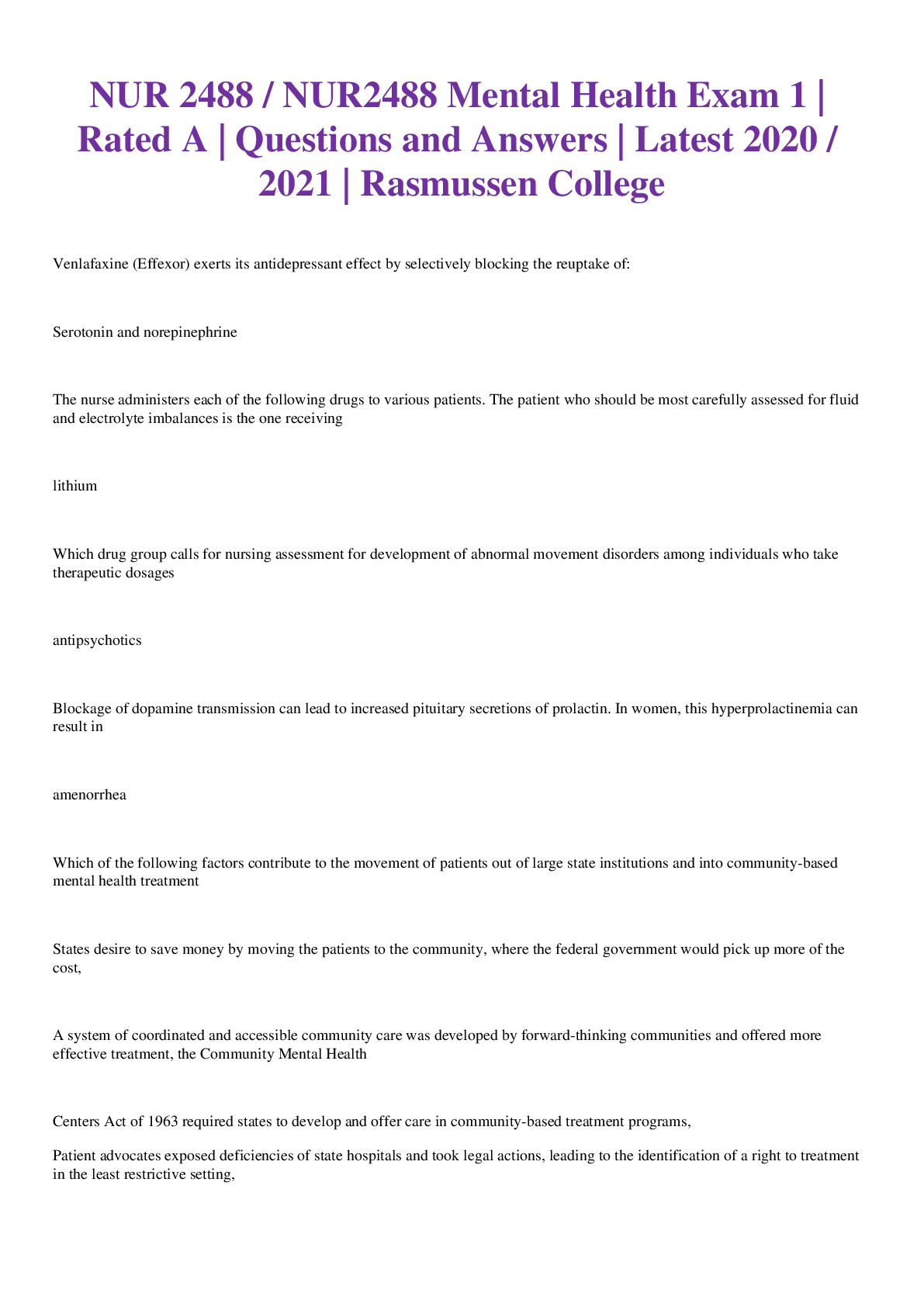Social Sciences > EXAM REVIEW > Mid-Term CJK 315 Criminal Evidence ALL SOLUTION LATEST 2023 EDITION GUARANTEED GRADE A+ (All)
Mid-Term CJK 315 Criminal Evidence ALL SOLUTION LATEST 2023 EDITION GUARANTEED GRADE A+
Document Content and Description Below
At a trial, expert testimony concerning hieroglyphics is required. One party offers the testimony of Laura Croft, who speaks several ancient languages and was the first to "crack" the language of the ... Rosetta Stone. However, Laura, age 18, is completely lacking in academic credentials and has not published anything. May Laura still qualify as an expert witness and why? Laura will qualify as an expert witness because of her knowledge, skill, and experience. To impeach Walt Disney's primary witness, which is Evil Stepmother, counsel for Snow White plans to introduce seven diminutive witnesses from the neighborhood who will testify that Evil Stepmother has a reputation for untruthfulness. Counsel for Walt Disney objects. On what grounds may some of the witnesses be excluded from testifying? On grounds that the reputation hearsay is a waste of the court's time. Bart Luck is found dead in his study by his maid, Hazel. Cardinell Syn is arrested and tried for murdering Bart by filtering sodium cyanide into the study. Hazel testifies for the prosecution, "When I found him, there was a faint smell of almonds in the room." (Note: The distinct smell of sodium cyanide is often likened to the smell of almonds.) Defense counsel objects, claiming that Hazel is not competent to offer her opinion on the presence of sodium cyanide and that an expert testimony is needed. Is Hazel's testimony admissible or inadmissible as a lay witness and why? Hazel's testimony is admissible lay witness testimony. (She is testifying to what she smells not that sodium cyanide was used). Jack Beanstalk's parole officer reasonably believes that Jack is growing marijuana in the basement of his home. There are no windows to allow the officer to see inside the basement. Without either a search warrant or probable cause the officer enters Jack's home and finds the marijuana in the basement. Did the officer's search violate the Fourth Amendment? Why or why not? The officer's search did not violate the Fourth Amendment because the officer reasonably believed that Jack was growing marijuana in his basement. Slippery pleads guilty to burglarizing Bart Simpson's house, then he withdraws that plea when he learns that someone has stolen the evidence. After Slippery goes to trial and is acquitted, Bart sues Slippery in a civil case to recover Bart's losses from the burglary. In response, Slippery denies culpability in the civil case. Bart seeks to introduce into evidence Slippery's initial plea of guilty to the burglary charge to impeach Slippery's denial in the civil action. Will Slippery's initial plea of guilty to the burglary charge be admissible or inadmissible and why? Slippery's initial plea of guilty to the burglary charge will be inadmissible because it was later withdrawn. Josef Journalist says, "Mata Hari is a thief." Mata Hari sues him for defamation and seeks to admit the statement into evidence. Is the statement, "Mata Hari is a thief" admissible in a defamation trial? Yes, the statement is admissible in a defamation trial. Police suspect that Leo and Loe have murdered Bobby Banks. They interrogate Loe without giving him his Miranda warnings first. He confesses and shows them where the body is hidden, which is in a shallow grave in the meadow. Search teams have been combing the meadow with the aid of bloodhounds, and are in the area when Loe points out the body. At Loe's trial, he objects to admission of the body, citing the illegality of the Miranda-less confession. Most likely, the court will rule the body admissible or inadmissible, and why? Most likely, the court will rule the body admissible because of the Inevitable Discovery exception. Bonnie and Clyde successfully rob a series of banks. After accumulating an adequate amount of cash, they settle down, get married, and make plans to raise a family. Unfortunately, Clyde gets apprehended while shopping for a baby crib at the Woolworth Department Store. In his subsequent federal trial for one of the bank robberies, the prosecution seeks to introduce Bonnie's testimony as to conversations she and Clyde had at the time of the robbery. Bonnie is willing to testify in exchange for leniency in her upcoming trial, for the sake of their unborn child, of course. Clyde objects, claiming marital privileges. Will the court rule Bonnie's testimony is privileged or not, and why? The court will rule that Bonnie's testimony is not privileged because they were not married at the time of the conversations and Bonnie is willing to testify. Which of the following is not an exception to the exclusionary or derivative evidence rules? Exigent Circumstances The state police suspected that Zaviera Hollandaise was running a brothel under the guise of an escort service. The police conducted an illegal search of her establishment and seized her account books in plain view, which provided proof of her illegal activity. In fact, the books revealed that Zaviera made over $10,000,000.00 in unreported income in the last two years. At trial, the Internal Revenue Service was able to get the illegally seized account books admitted into evidence, which resulted in a civil judgment for fraud against Zaviera. Zaviera appeals, asserting that the illegally seized evidence should have been ruled inadmissible by the trial court. How should the appeals court rule? The appeals court should not overrule the trial court because the illegally seized account books would not deter the police misconduct so that it outweighs the societal costs. (Police are not involved in civil cases). Otto Dingle is charged with raping Mata Hari. Dingle claims consent as a defense and offers evidence of specific instances where he and Hari had prior sexual relations. The prosecutor objects, claiming that the victim's past sexual behavior is inadmissible in rape cases. How should the court rule? The court should rule that the defendant's evidence of the victim's past sexual behavior is admissible. The Self-Incrimination Clause has only one, specific goal: to protect against compelled, self-incriminating statements. This falls under the ___________ Amendment. Fifth In Pothead's drug-smuggling trial, the prosecution seeks to introduce the expert testimony of Dr. Mary Juana, who will testify that marijuana causes psychosis in laboratory mice. What should be the basis of Pothead's objection to Dr. Juana's testimony? That the expert witness testimony is irrelevant. Bob Cratchit is on trial for embezzlement. Tiny Tim appears as a defense witness. On cross-examination the prosecutor asks Tiny Tim, "Isn't Bob Cratchit your father?" The defense objects, claiming that the question seeks to introduce immaterial testimony. Will the court allow or deny the witness to answer the prosecutor's question, and why? The court will allow the witness to answer the prosecutor's question because it attacks the witness's credibility by showing bias, prejudice, or ulterior motive. Under the Federal Rules of Evidence, the exclusionary rule would not apply in a case of an unlawful search and seizure conducted by a private citizen acting totally on their own because The Fourth Amendment would not be applicable. Otis is arrested for driving while intoxicated. When he is taken to the Mayberry police station and booked, he is videotaped, showing that he is swaying and his speech is slurred. At Otis's trial, the prosecutor authenticates the videotape and offers it into evidence to show that Otis was intoxicated. Since it is being offered to prove the truth of the matter asserted, will the videotape be admitted over a hearsay objection? Admissible because it is as relevant evidence that is non-hearsay. Custer and Sitting Bull are involved in an automobile collision on April 1 at a bend on Little Big Horn Street. Custer sues Sitting Bull for negligence in crossing the double yellow line. Sitting Bull claims he was swerving to avoid a large tree that had fallen across his lane, which he could not see in time to stop. Sitting Bull asks the judge to take judicial notice of the fallen tree. In fact, the judge knows about the fallen tree because he lives on Little Big Horn Street. May the judge properly take judicial notice of the tree? No, because the fact in issue is not generally known within the community. Mr. Macho is on trial for murdering Mr. Meek. Macho claims self-defense. Wilbur Witness testifies for the prosecution that Anne Attacourt and several others have told him that Meek has a reputation for peacefulness. Macho objects on the grounds that Anne herself is available to testify. How should the court rule? The court should allow the witness to testify because it is admissible character evidence. To attack the credibility of defense witness Ely Daily, Peter Prosecutor introduces evidence that in a prior case, Daily was convicted of perjury. Is the evidence of Daily's conviction admissible or inadmissible, and why? The evidence of Daily's conviction is admissible because it was a crime involving dishonesty or false statement. Police are suspicious that Dr. Frankenstein has been stealing bodies from graves to conduct experiments on them in a laboratory inside his home. They enter his house one night and seize his diary. The diary discloses that two men, Burke and Hare, are smuggling narcotics to fund the operation. Subsequently, the police interviewed Frankenstein's butler, Igor, who tells the police that Burke and Hare are smuggling drugs. Frankenstein objects to evidence of the narcotics trafficking at his trial, citing the illegal seizure of his diary. Is the evidence of the narcotics trafficking most likely admissible or inadmissible, and why? The evidence of the narcotics trafficking in most likely admissible because of Igor's testimony. John Wilkes Booth is arrested for the assassination of President Lincoln. At trial, Booth is asked whether he was at Ford Theatre the night of the murder. He states that he was playing cards in Richmond that night. The prosecutor seeks to call to the stand Dr. Mudd, who will testify that the night of the assassination, Booth told him that he had just come from the Ford Theatre. Counsel for Booth objects, claiming that his Sixth Amendment Confrontational rights would be violated by admitting the statement. Will the court rule Mudd's testimony admissible or inadmissible and why? The court will rule Mudd's testimony admissible because the defendant's Confrontation Clause rights will not be violated. Harry Houdini is a key witness for the government at a criminal trial. Just as the prosecutor finishes his questioning, Houdini's appendix bursts and he dies! What should the trial judge do with respect to Houdini's direct testimony, and why? The court will rule Mudd's testimony inadmissible because the defendant's Confrontation Clause rights will be violated. Kenneth Lay is charged with theft. As a reputation witness, he calls Miss Crabtree to the stand. She testifies, "Everyone in town knows what a docile, peace-loving man Kenneth is." Is Ms. Crabtree's testimony admissible? No, it is irrelevant. The police arrest John Doe, handcuff him, and start to question him without providing him with the required Miranda warnings. In an otherwise voluntary statement, Doe tells police where to find a firearm in his house, which was illegal for Doe to possess. Doe moves to suppress the gun as "fruit of the poisonous tree." Will he prevail and why? The gun will most likely not be suppressed because it was obtained by an unwarned voluntary statement made after Doe was lawfully arrested. Police suspect that Mary Juana is growing illegal weed in a remote field on her farm. Mary Juana has a barbed-wire fence posted around the entire 50-acre farm, pit bulls patrolling the fence perimeter, and "No Trespassing" signs posted every five feet. Nonetheless, the police cut the fence and enter the field, where they find the illegal weed. Has there been a search under the fourth amendment? Why or why not? This was not a search under the Fourth Amendment because Mary Juana did not have a reasonable expectation of privacy. (The area was an open field remote from a residence). Only the exception for ____________ applies to the Exclusionary Rule. Good Faith; Inevitable Discovery; Independent Source; Attenuation of the Taint; All of the above are exceptions to the Exclusionary Rule. Good Faith [Show More]
Last updated: 1 year ago
Preview 1 out of 9 pages
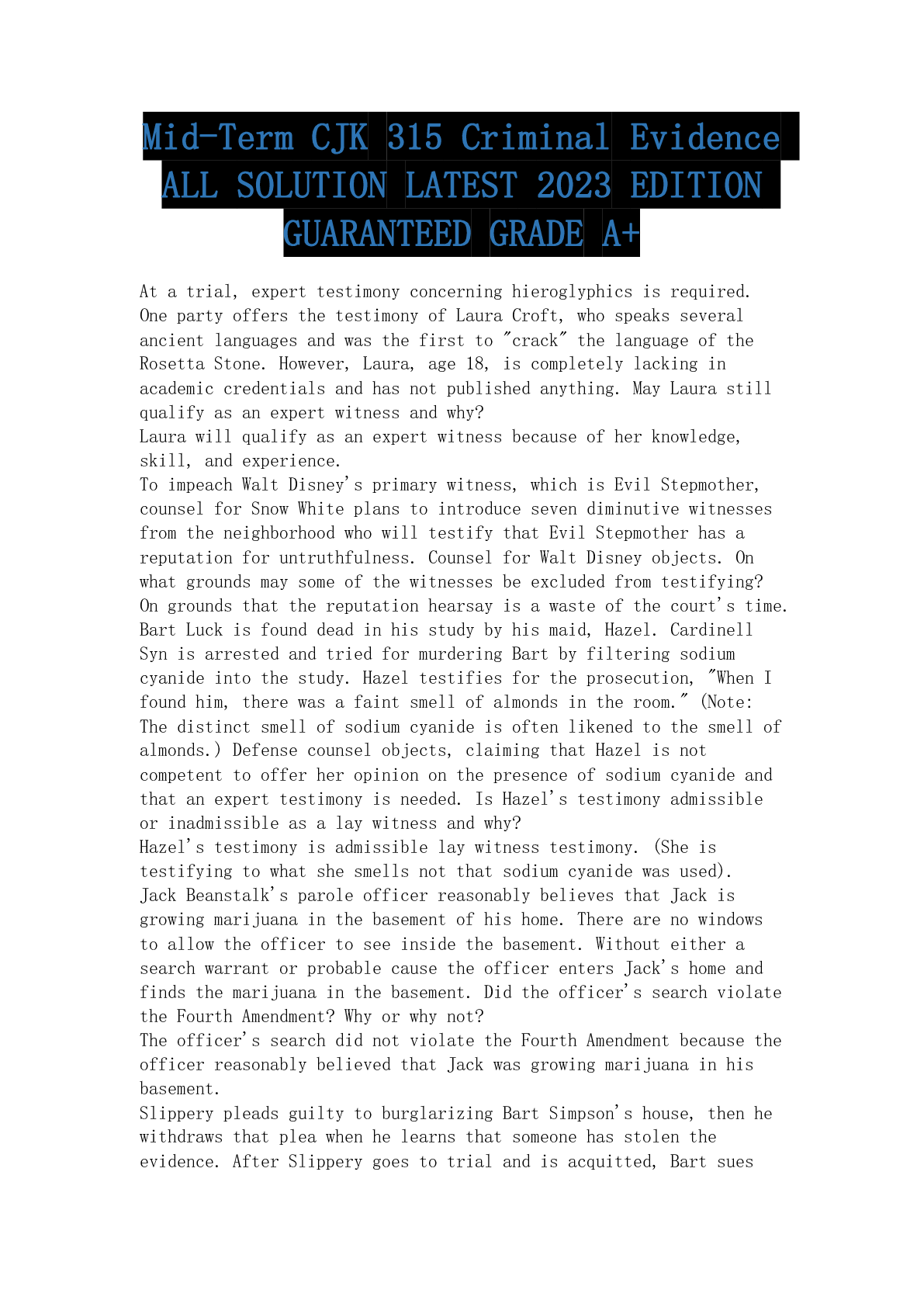
Reviews( 0 )
Document information
Connected school, study & course
About the document
Uploaded On
Apr 22, 2023
Number of pages
9
Written in
Additional information
This document has been written for:
Uploaded
Apr 22, 2023
Downloads
0
Views
53


